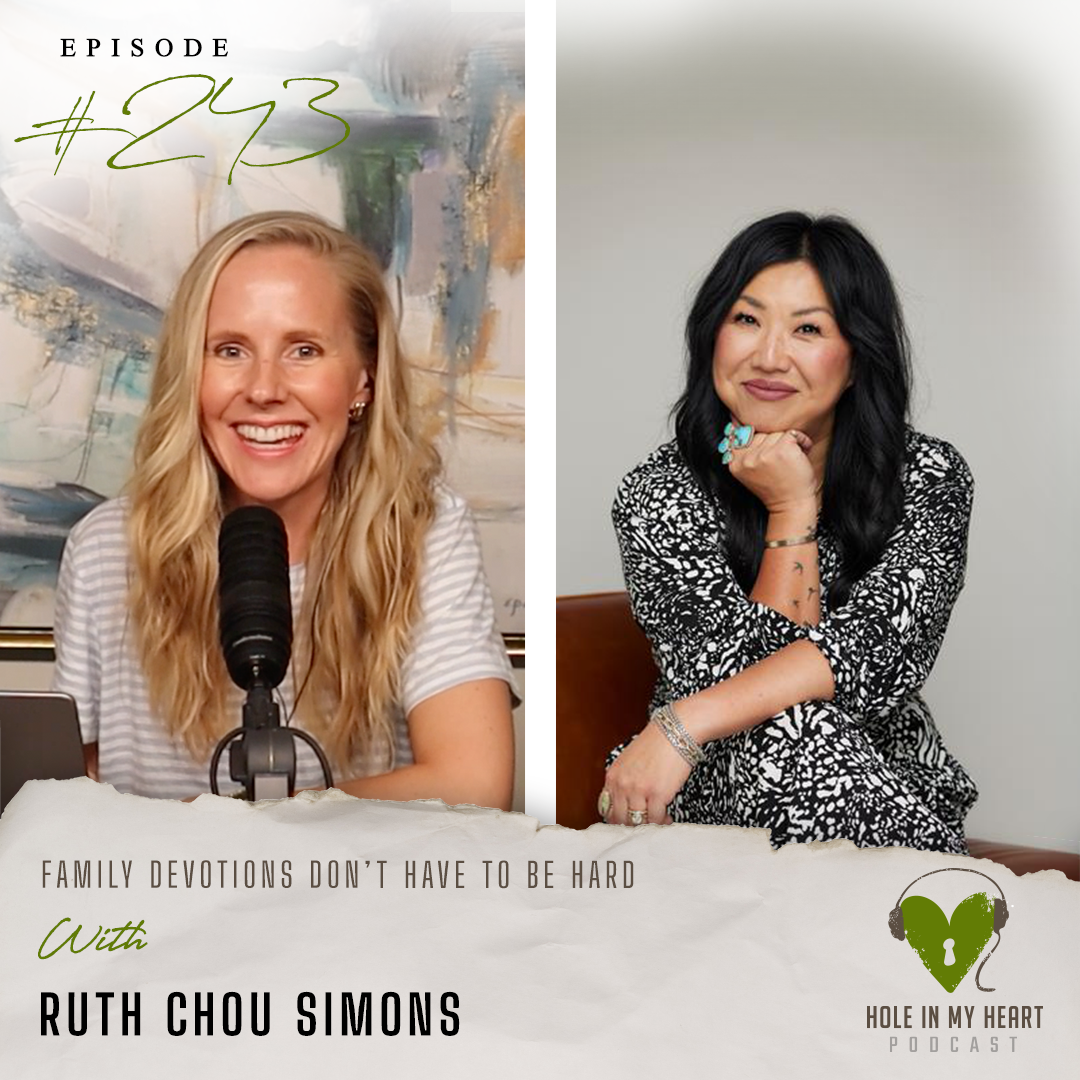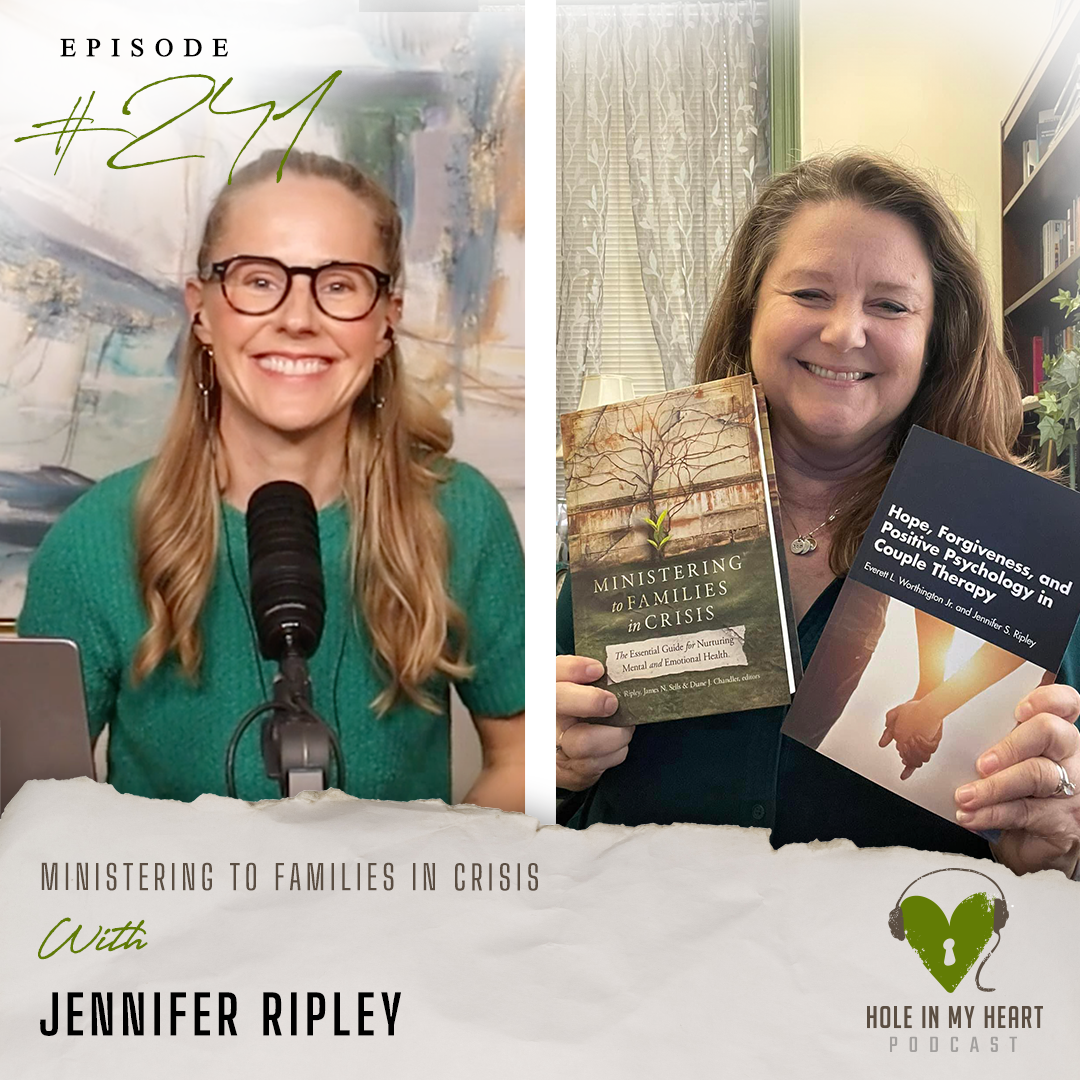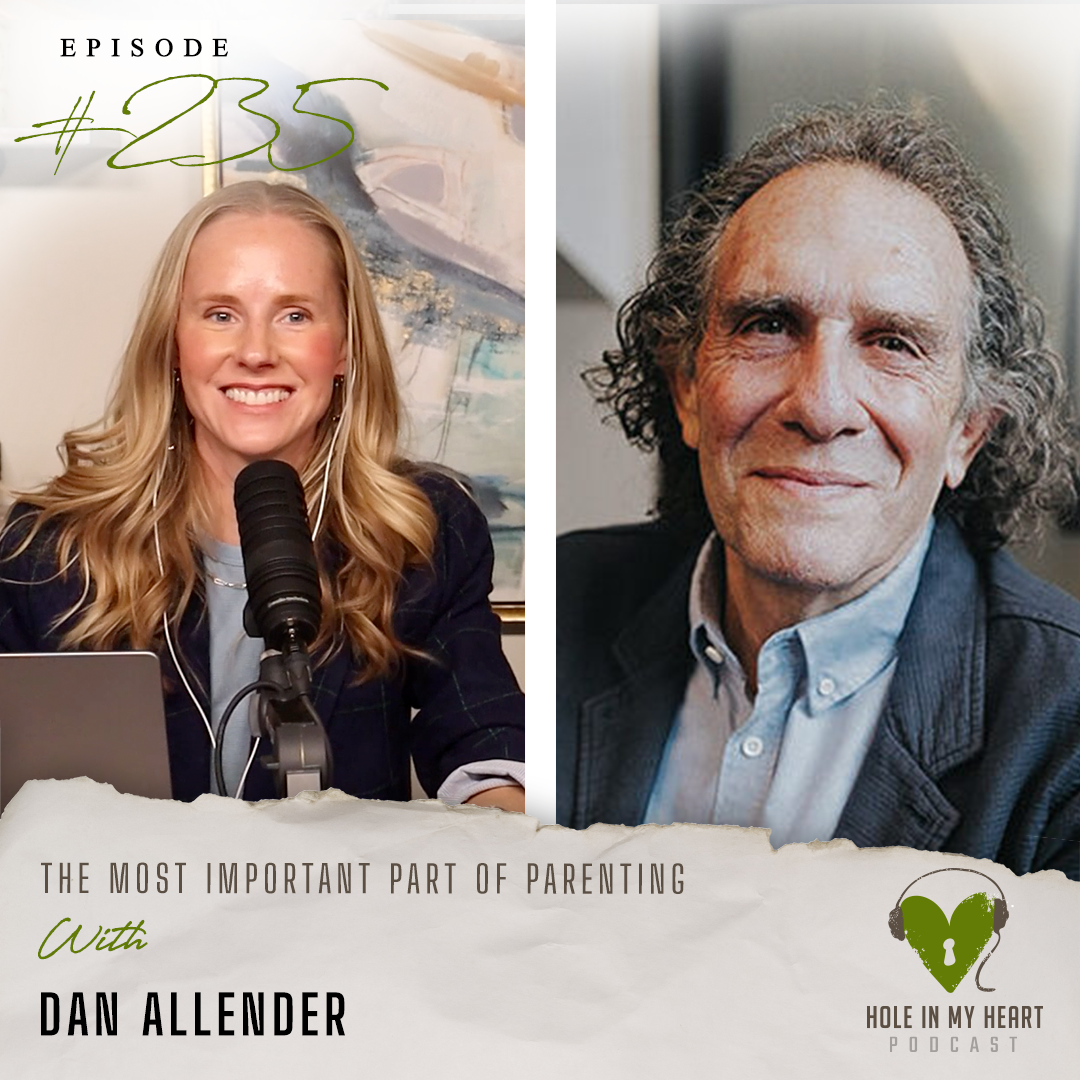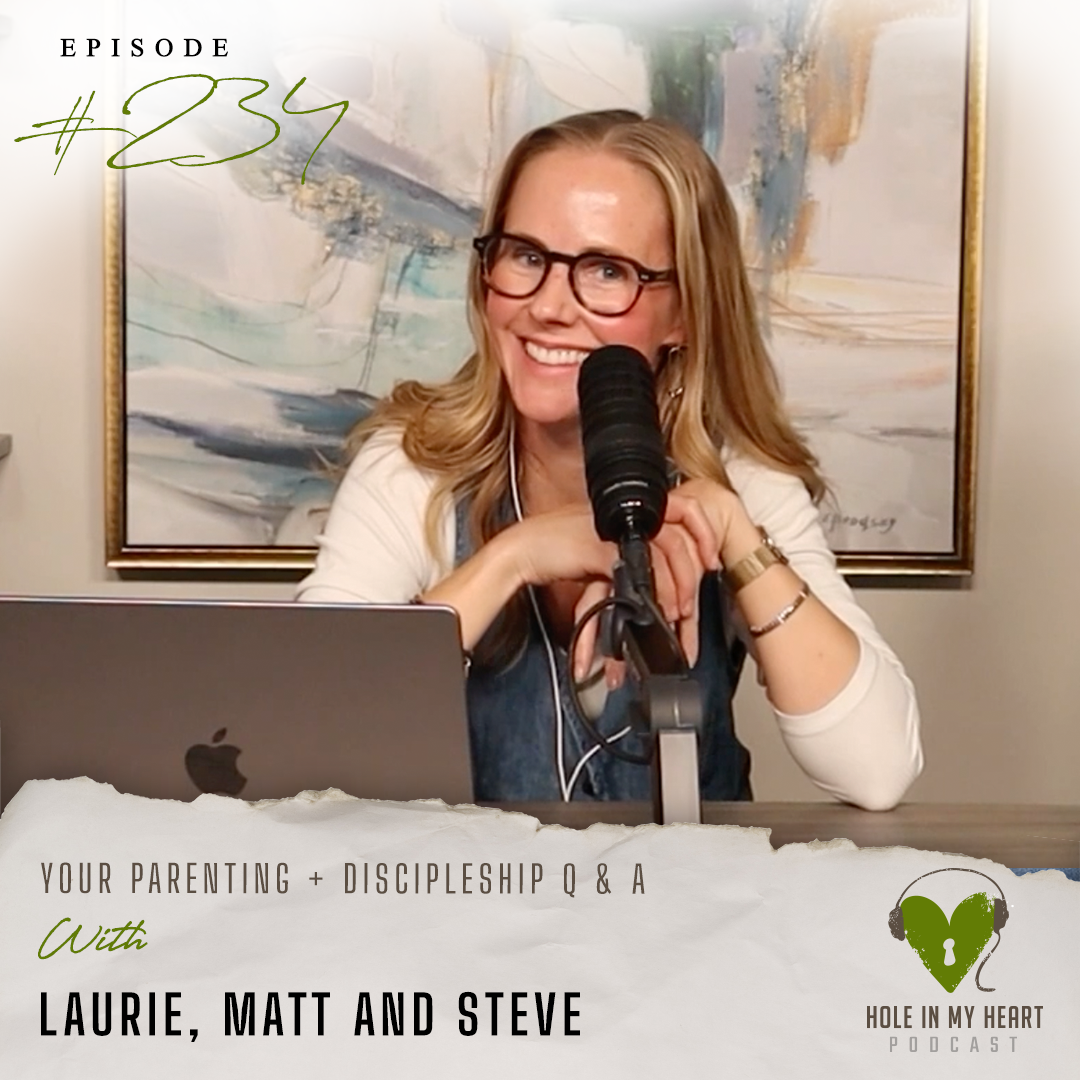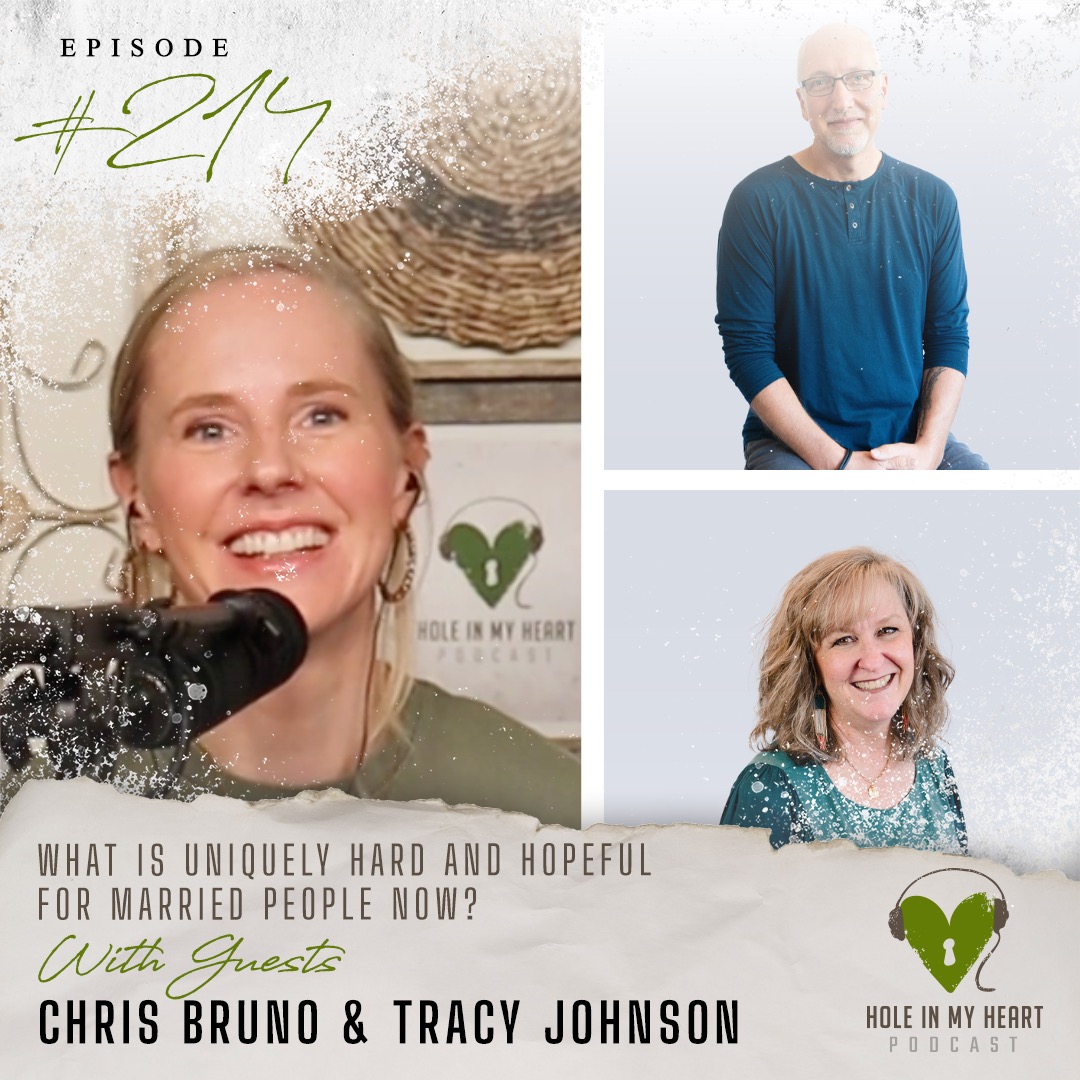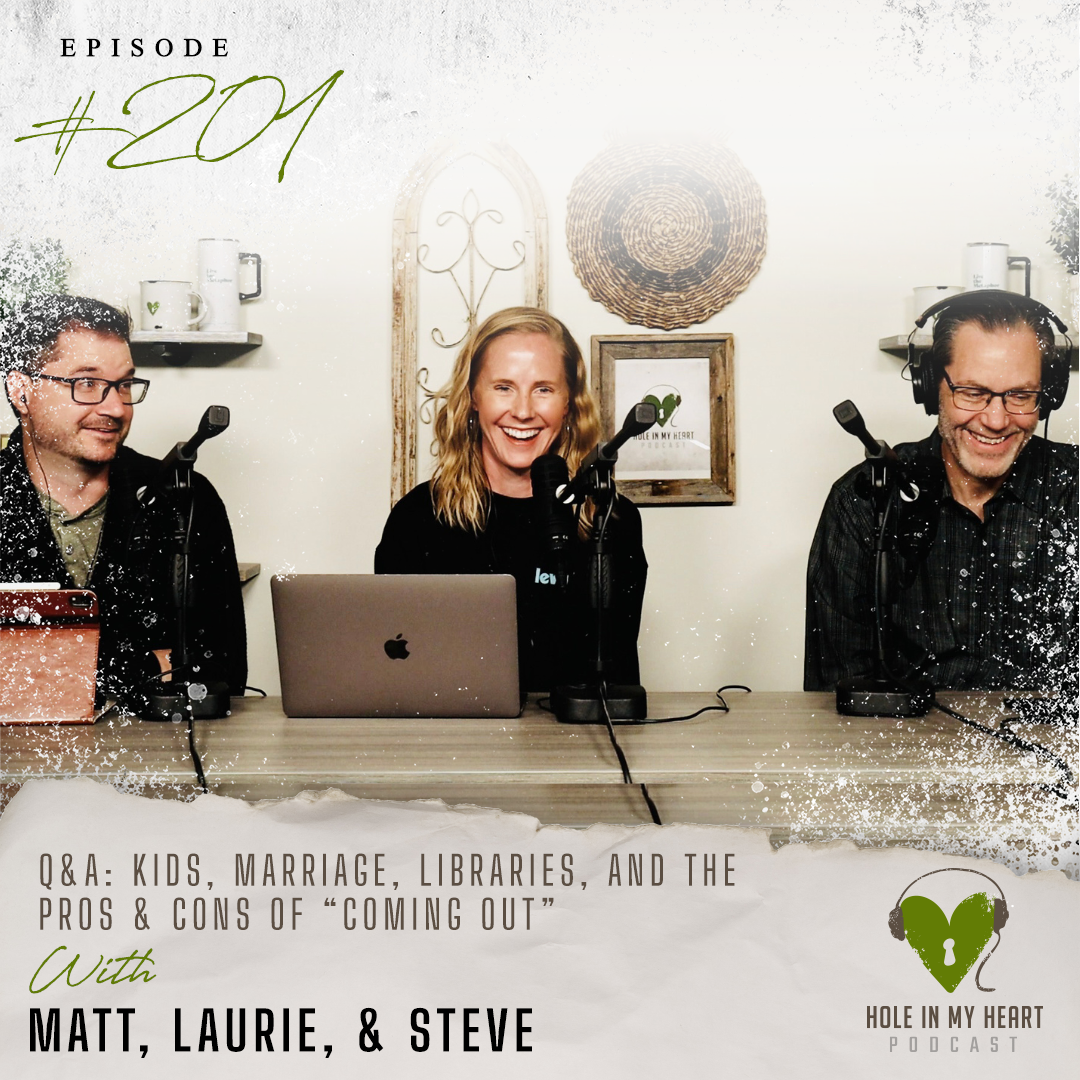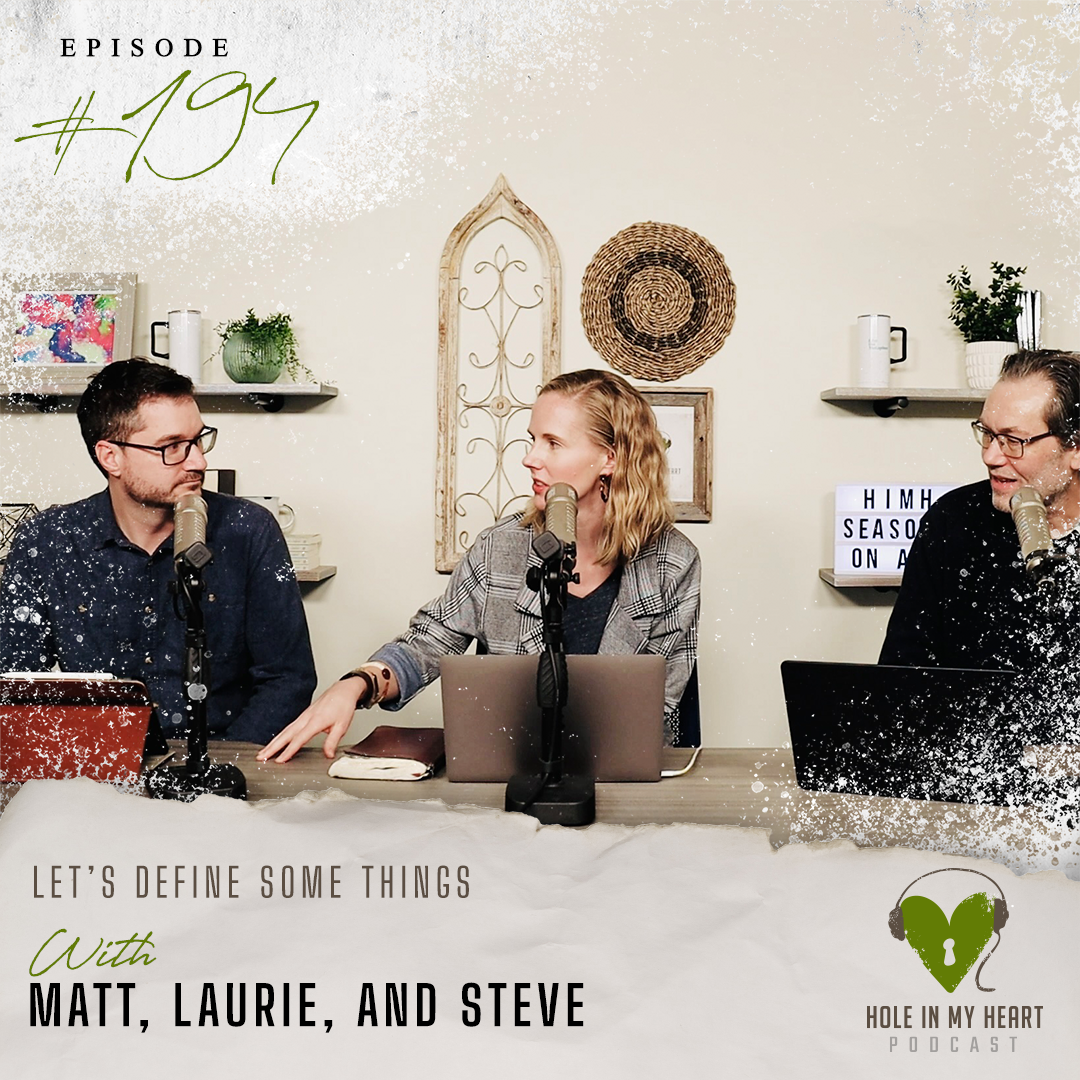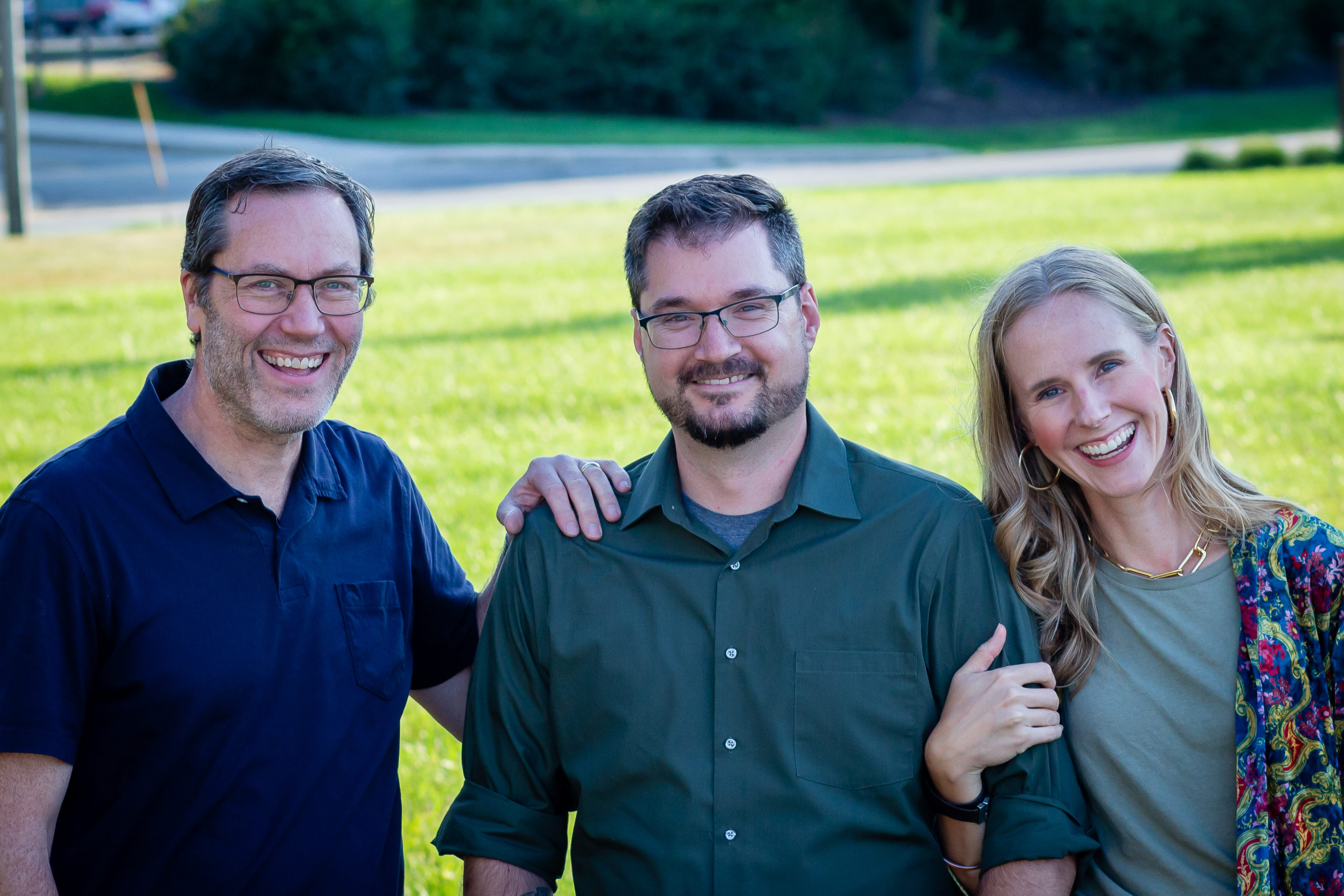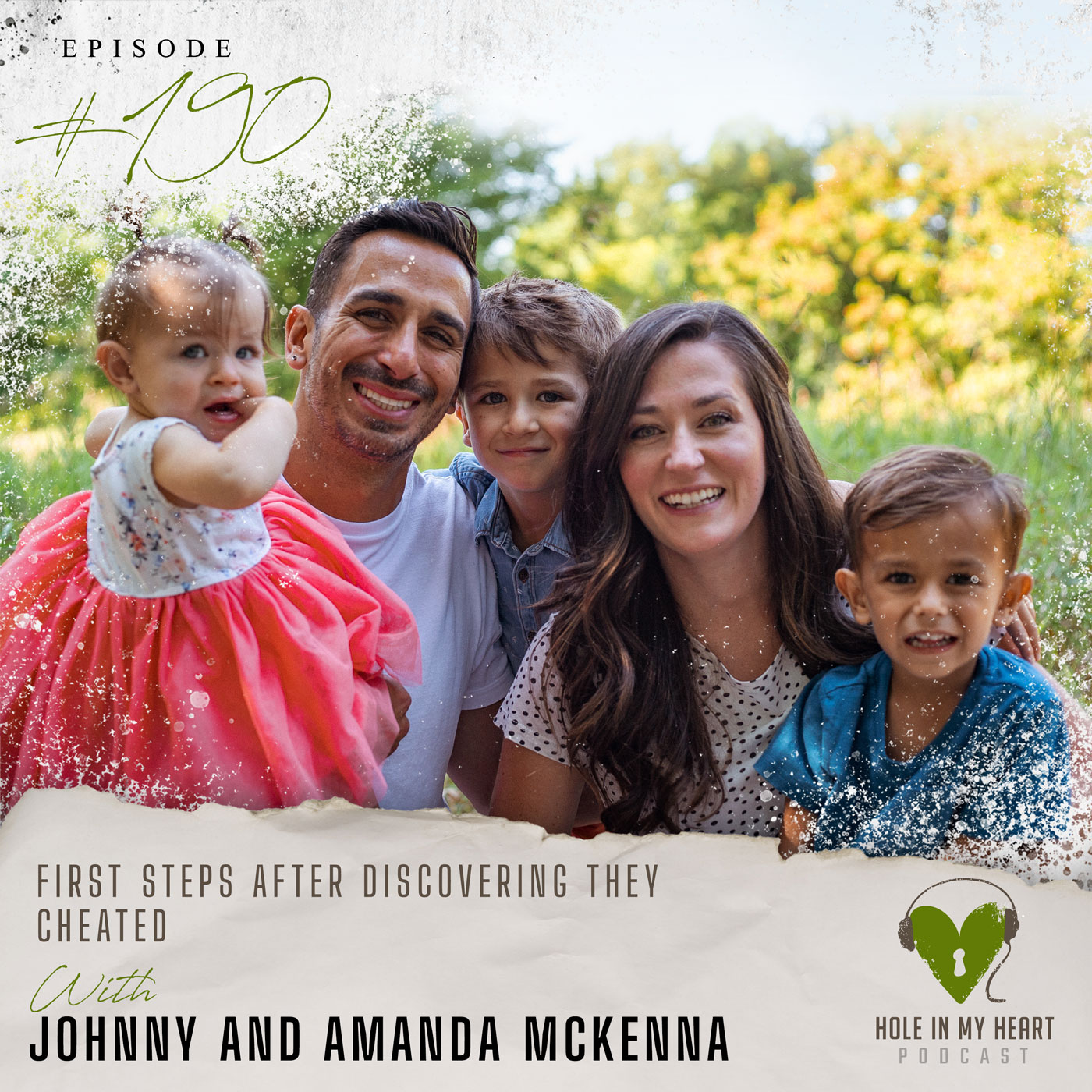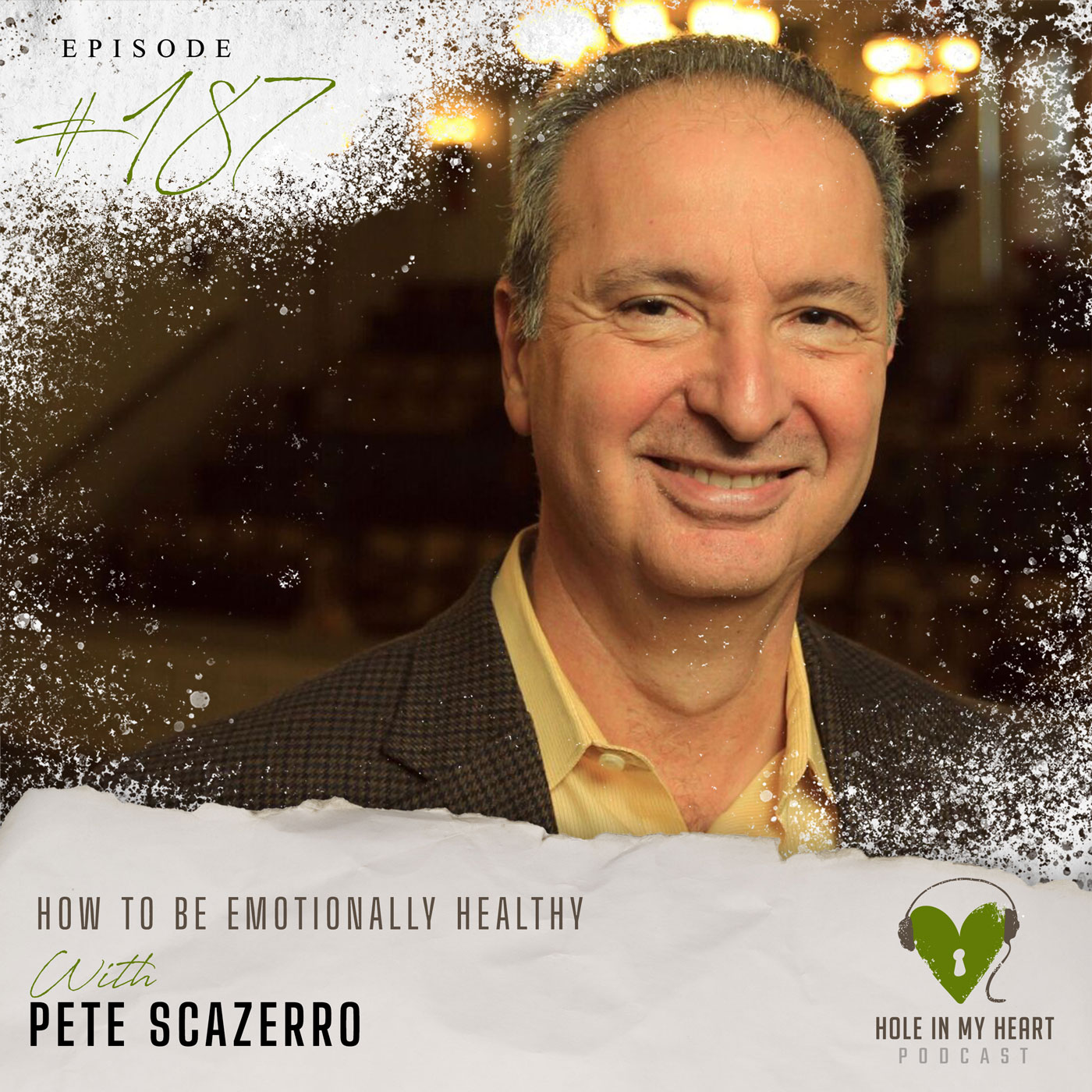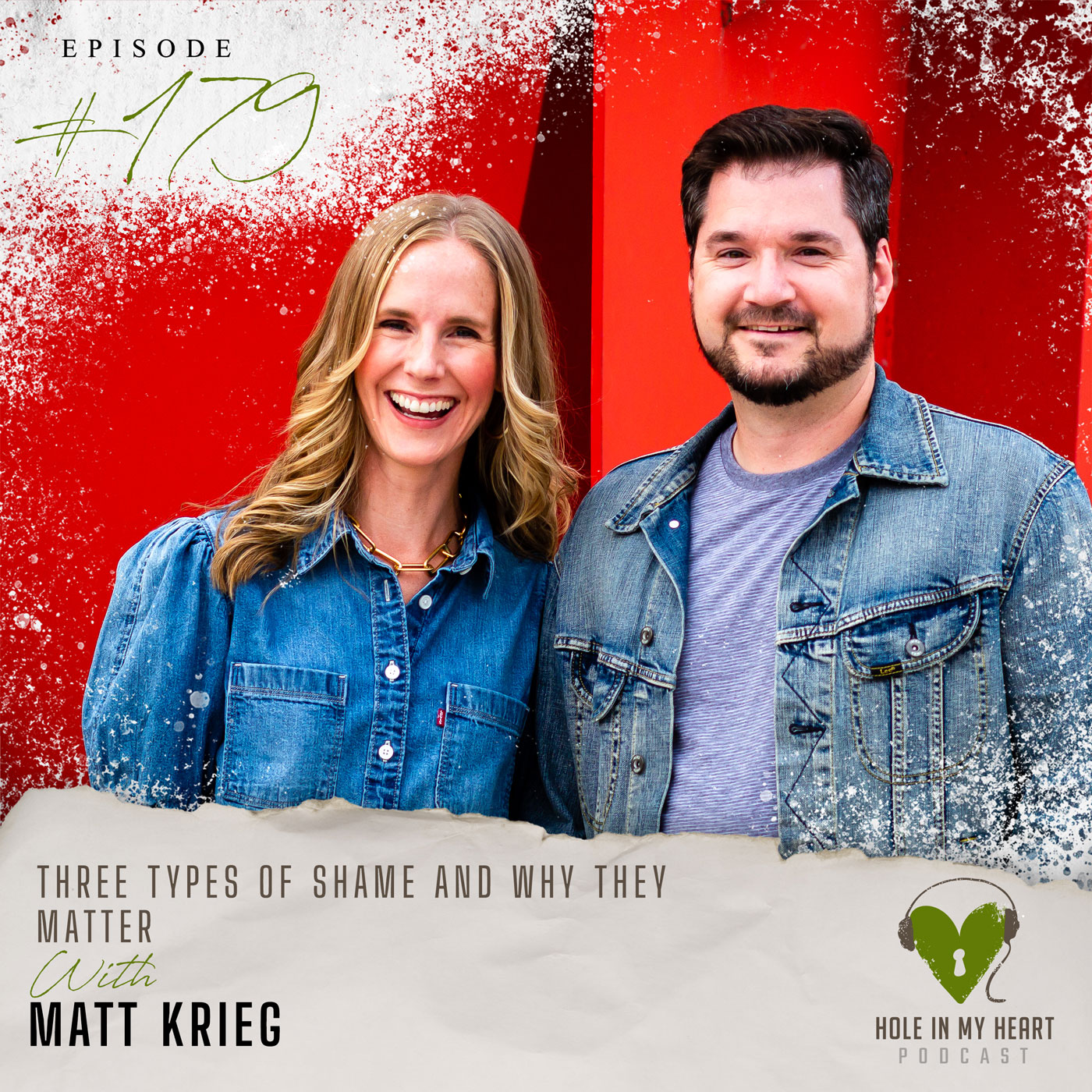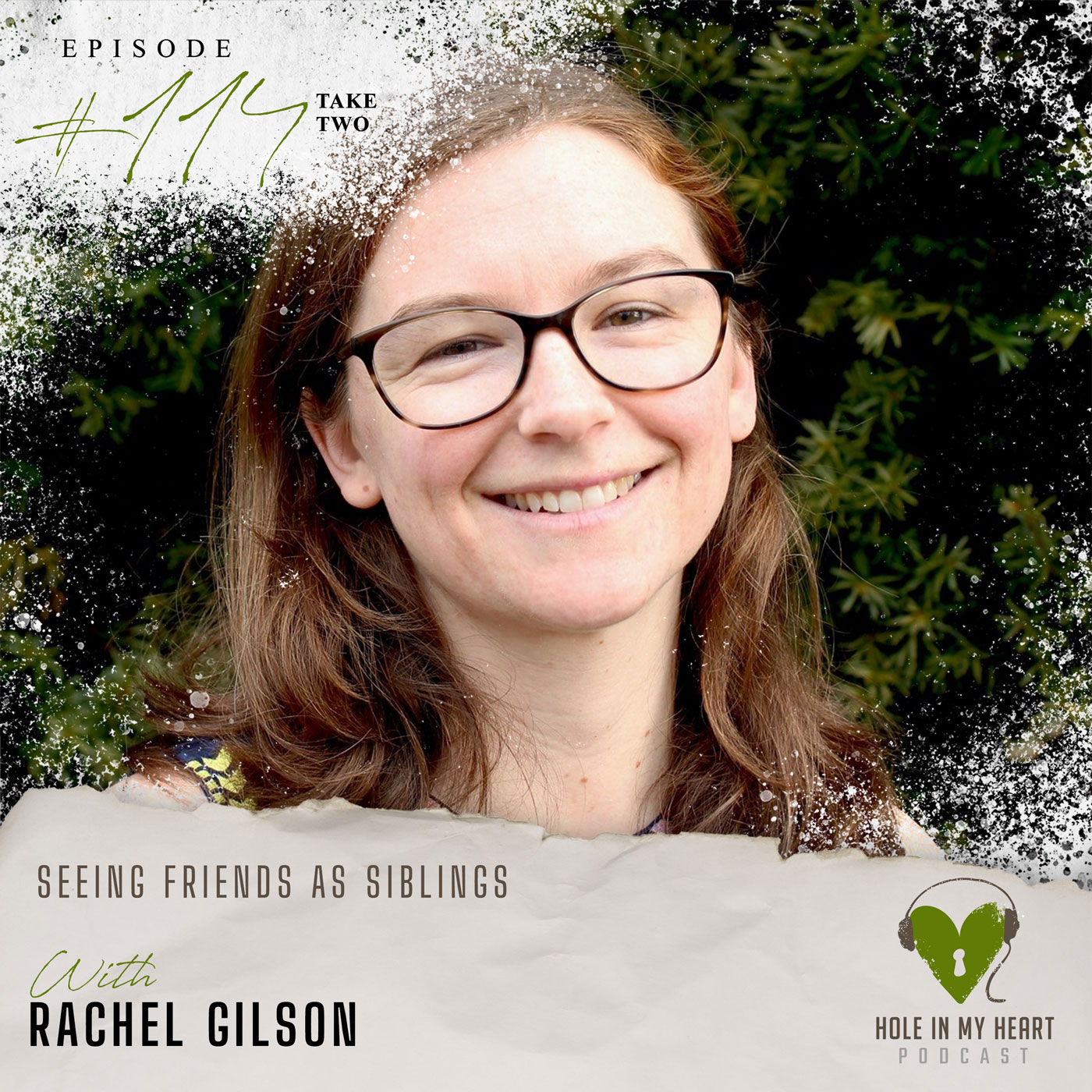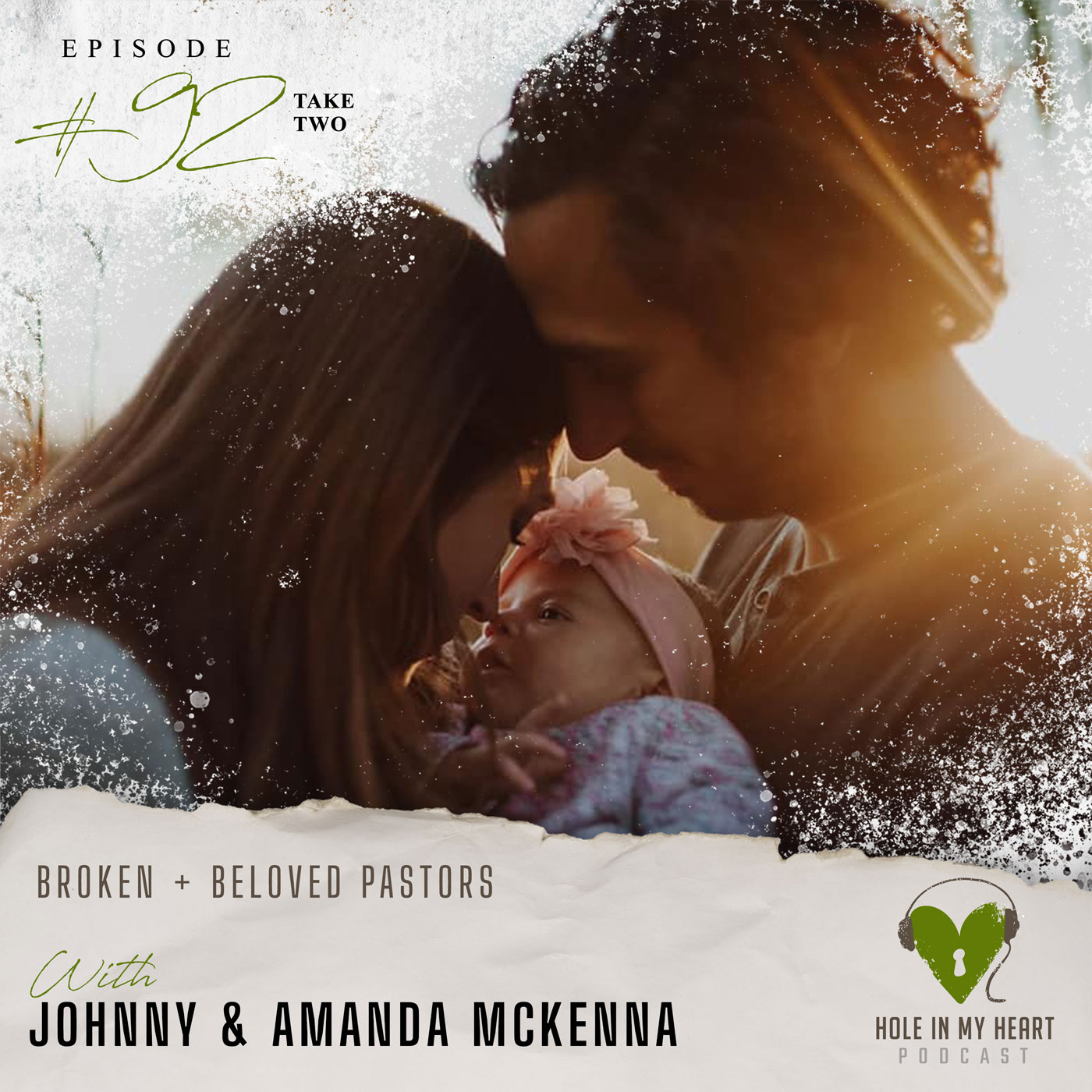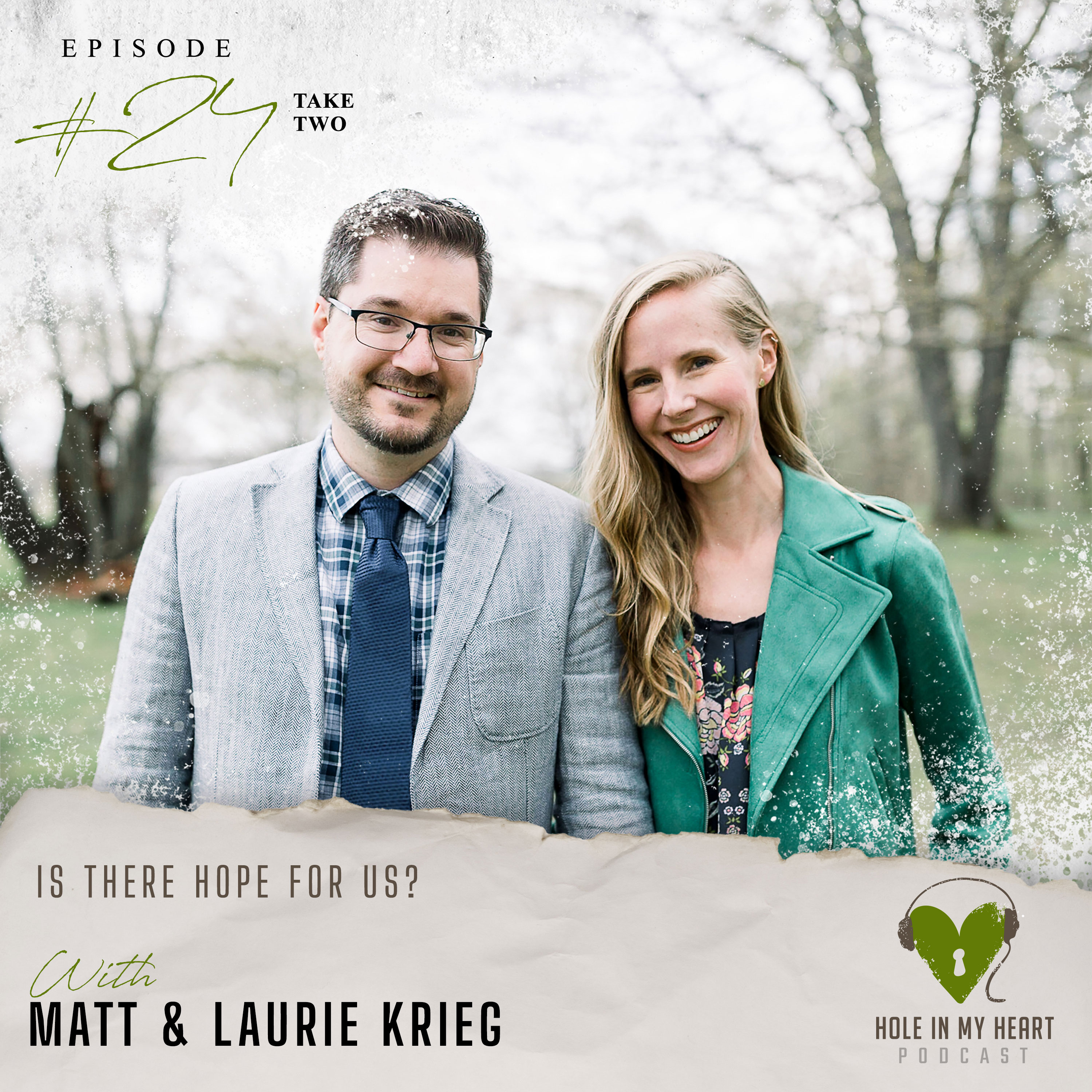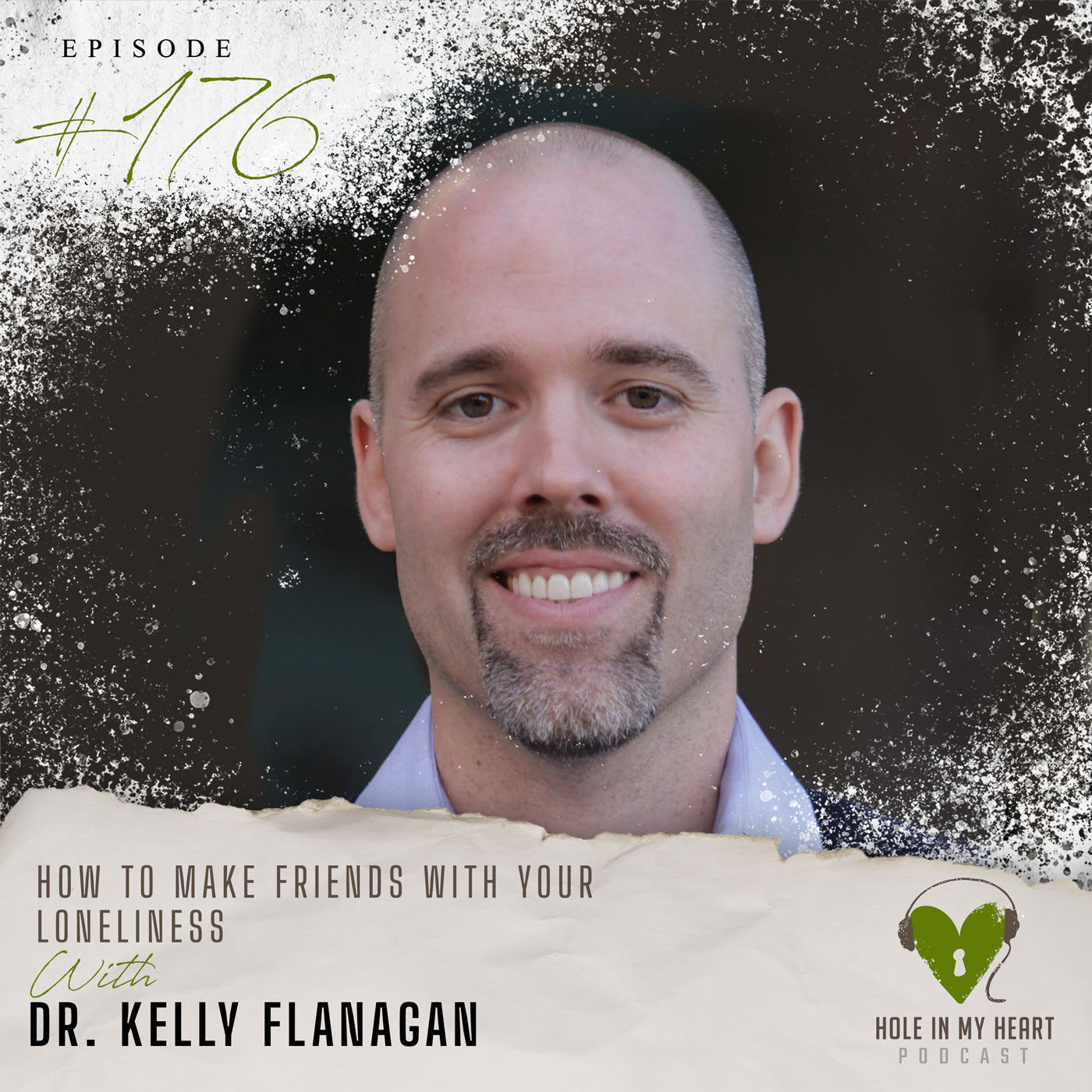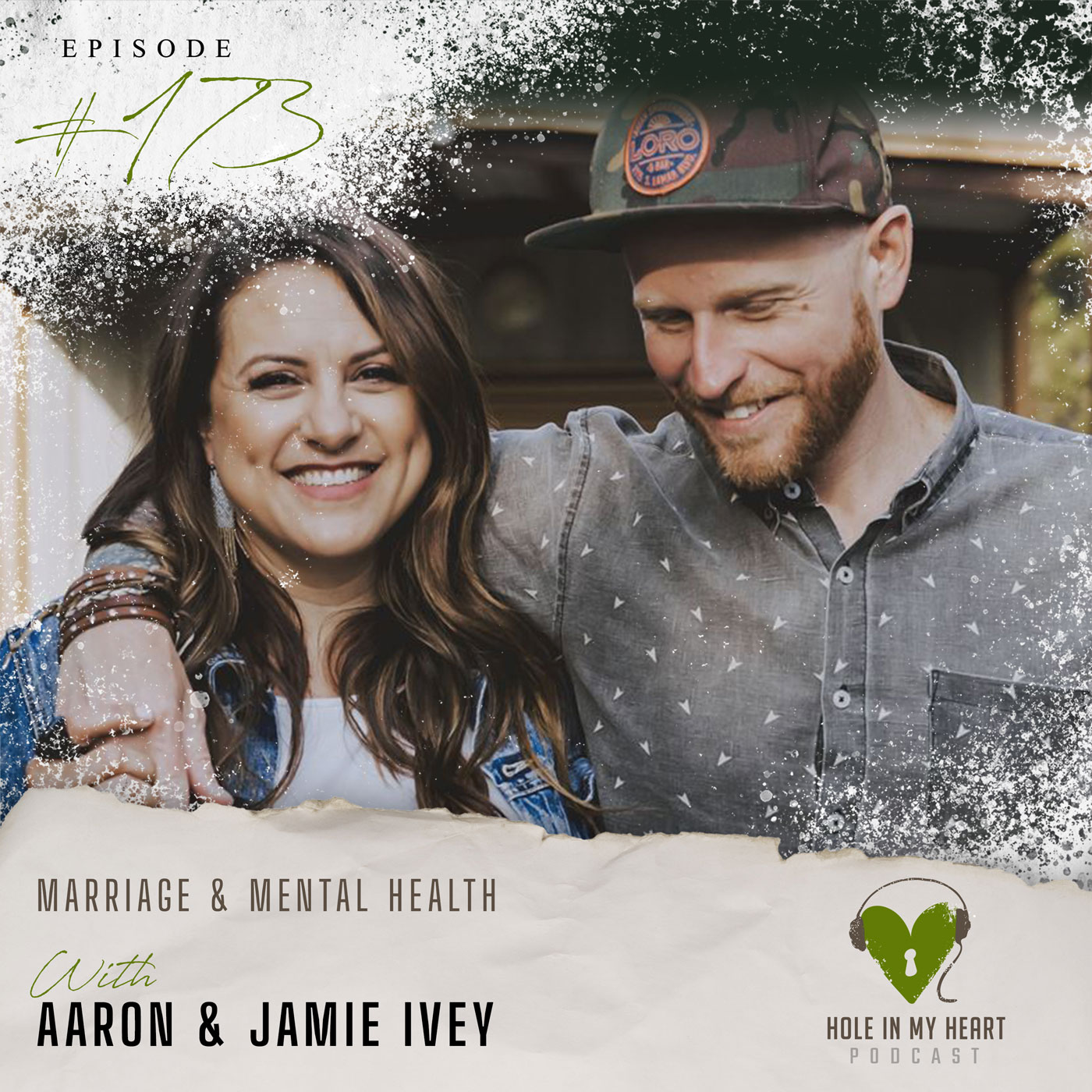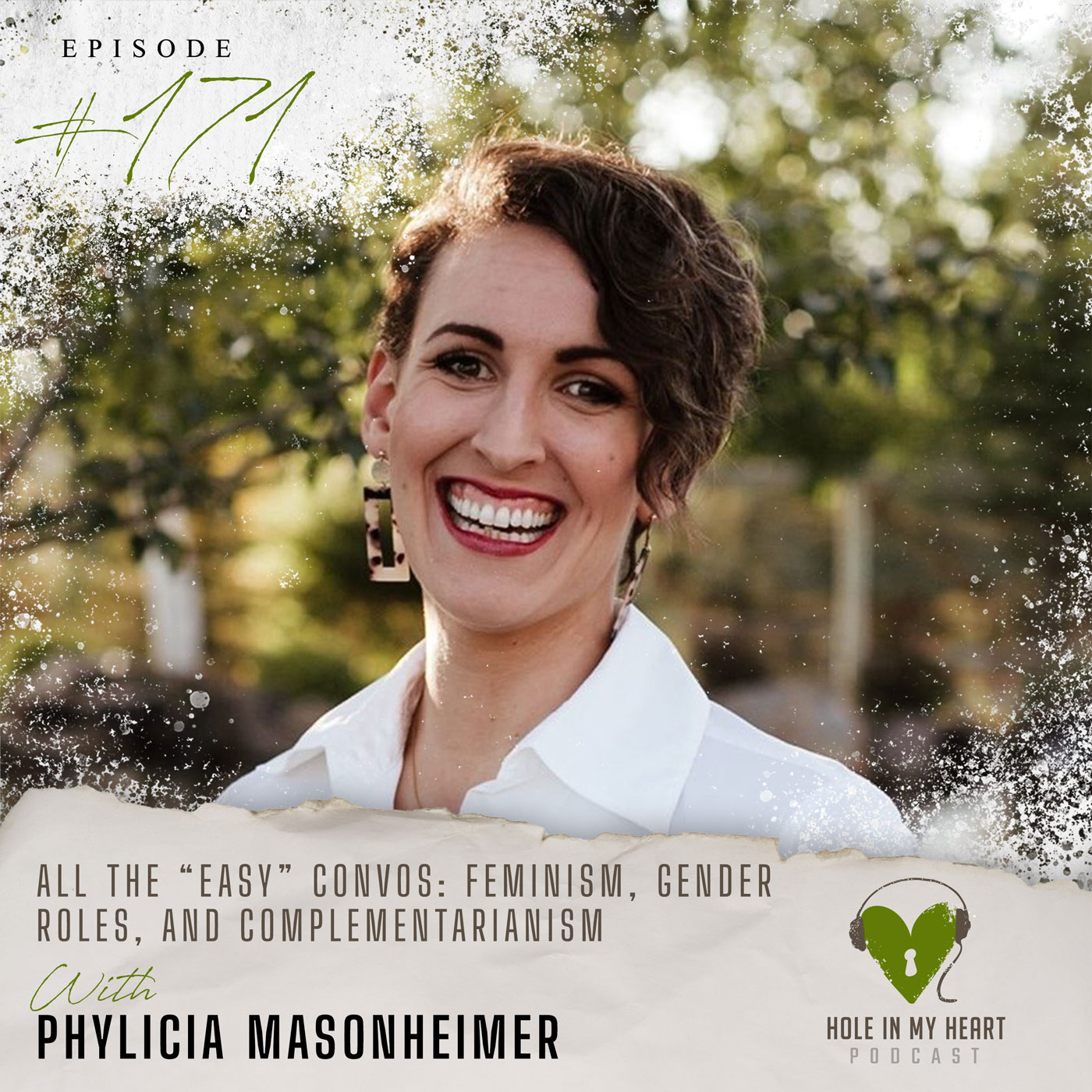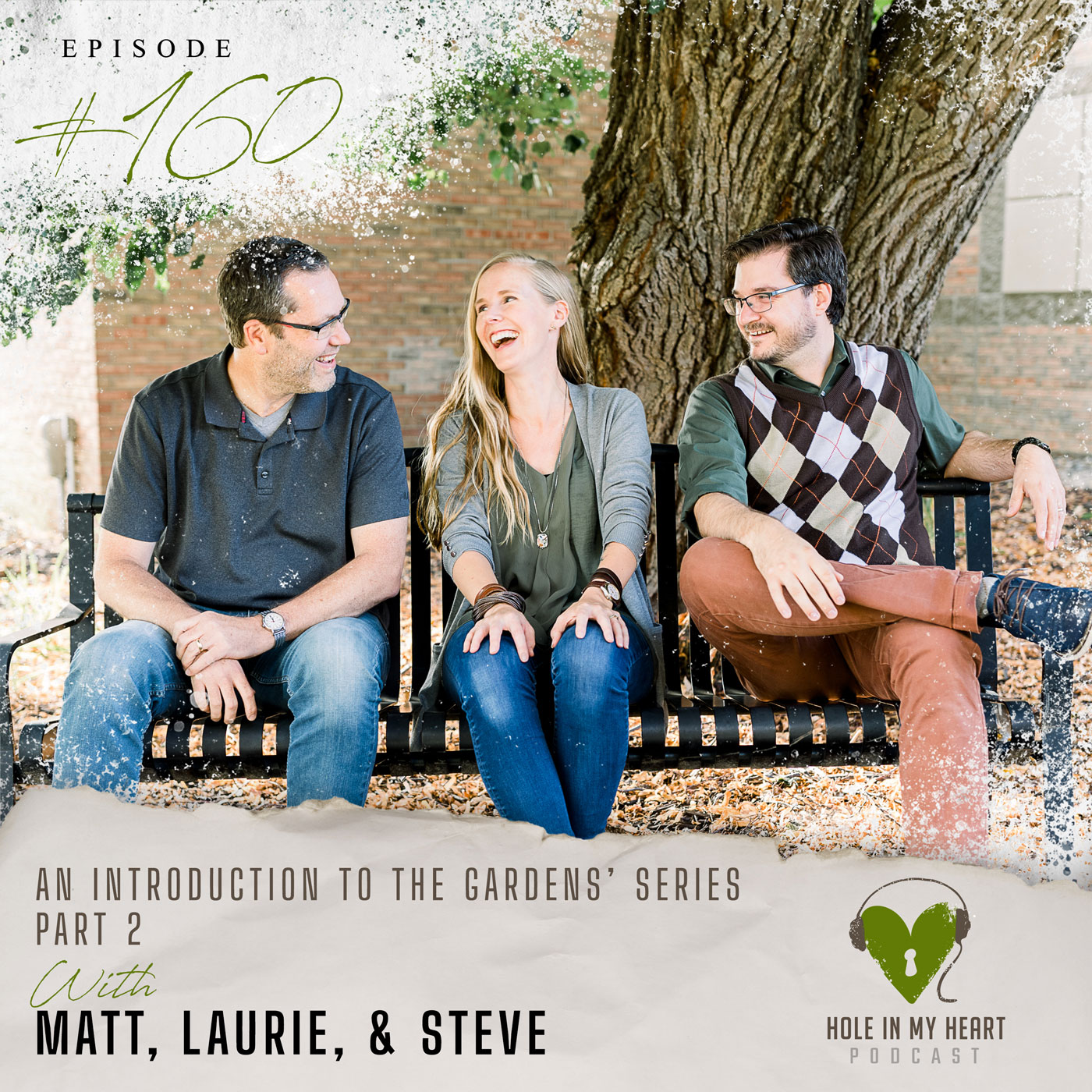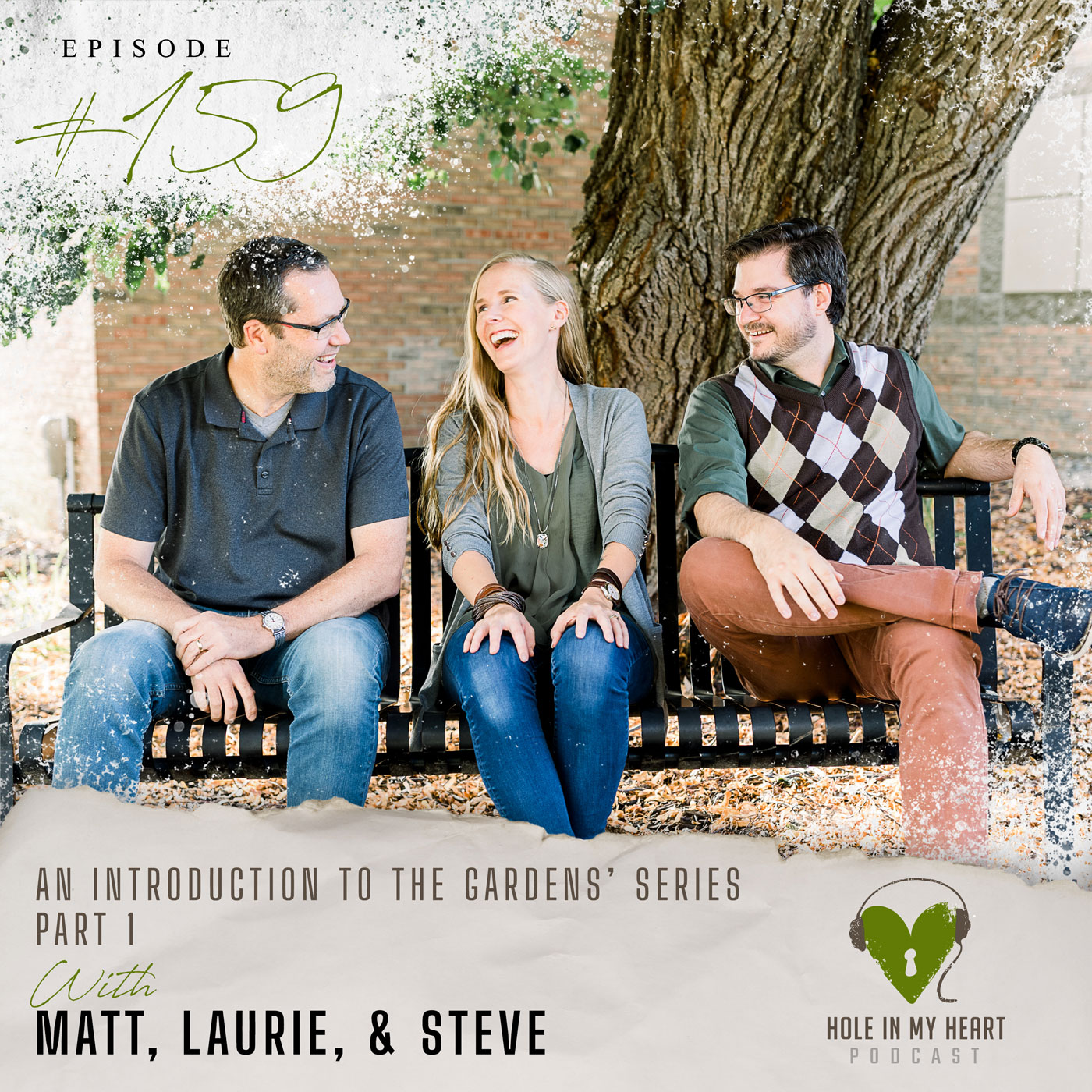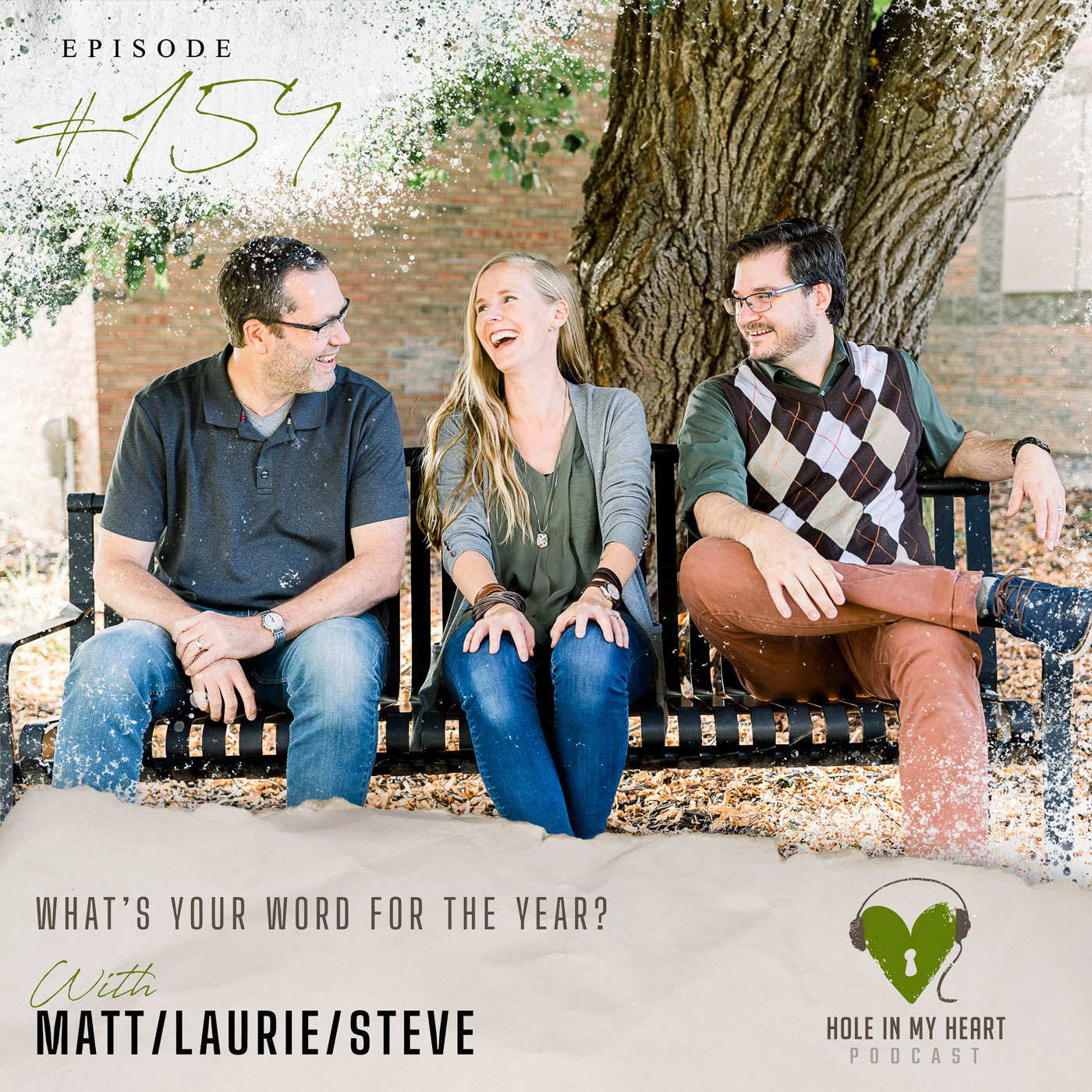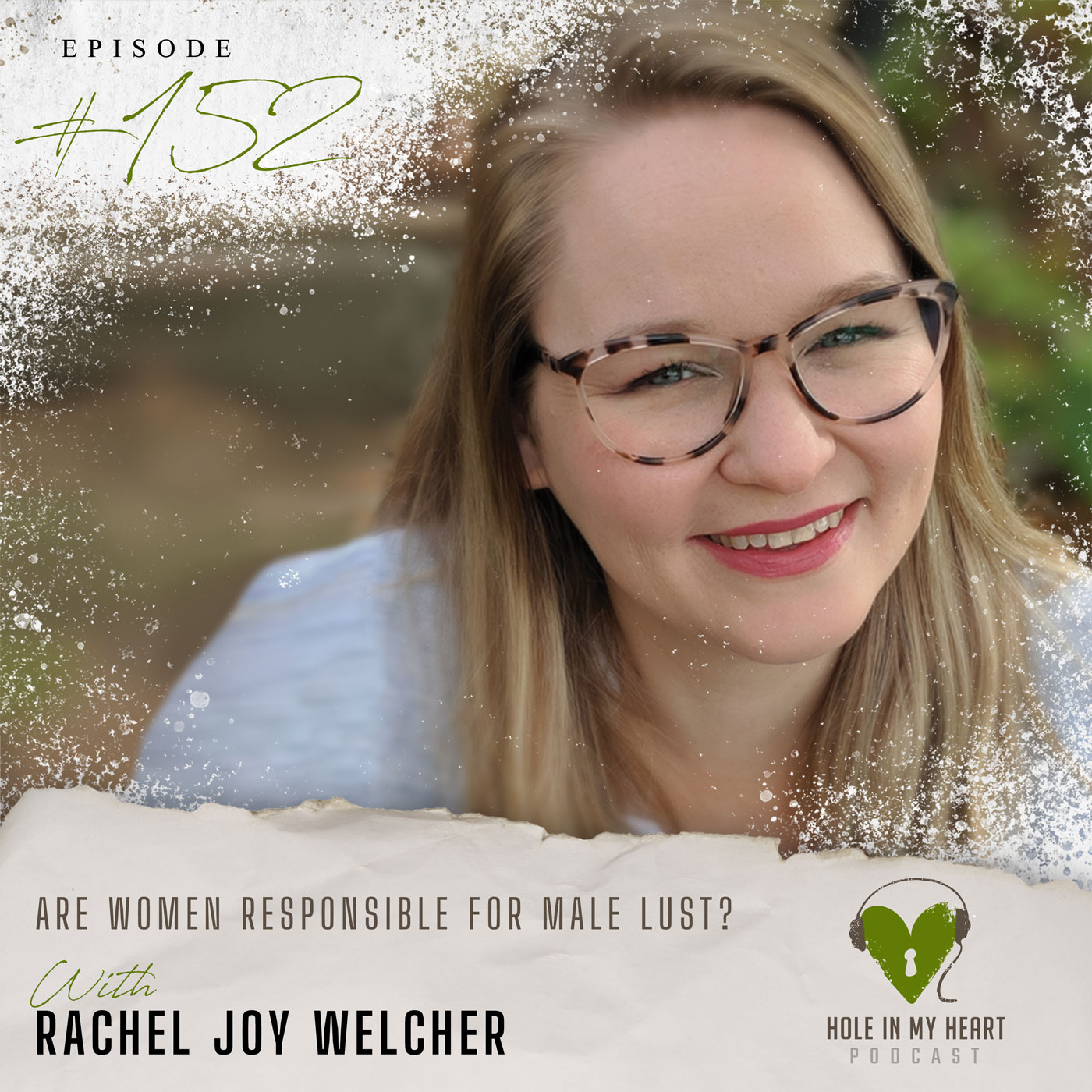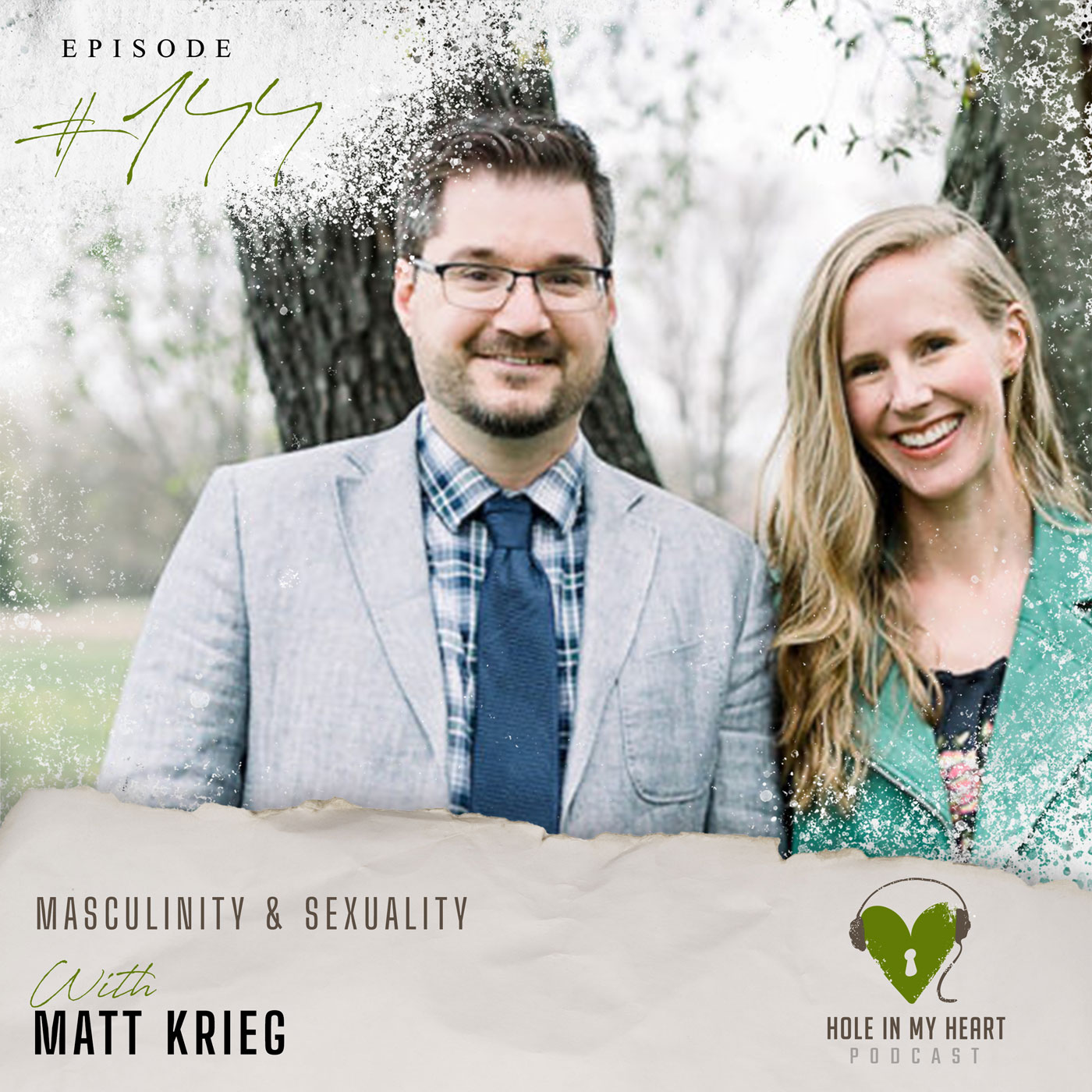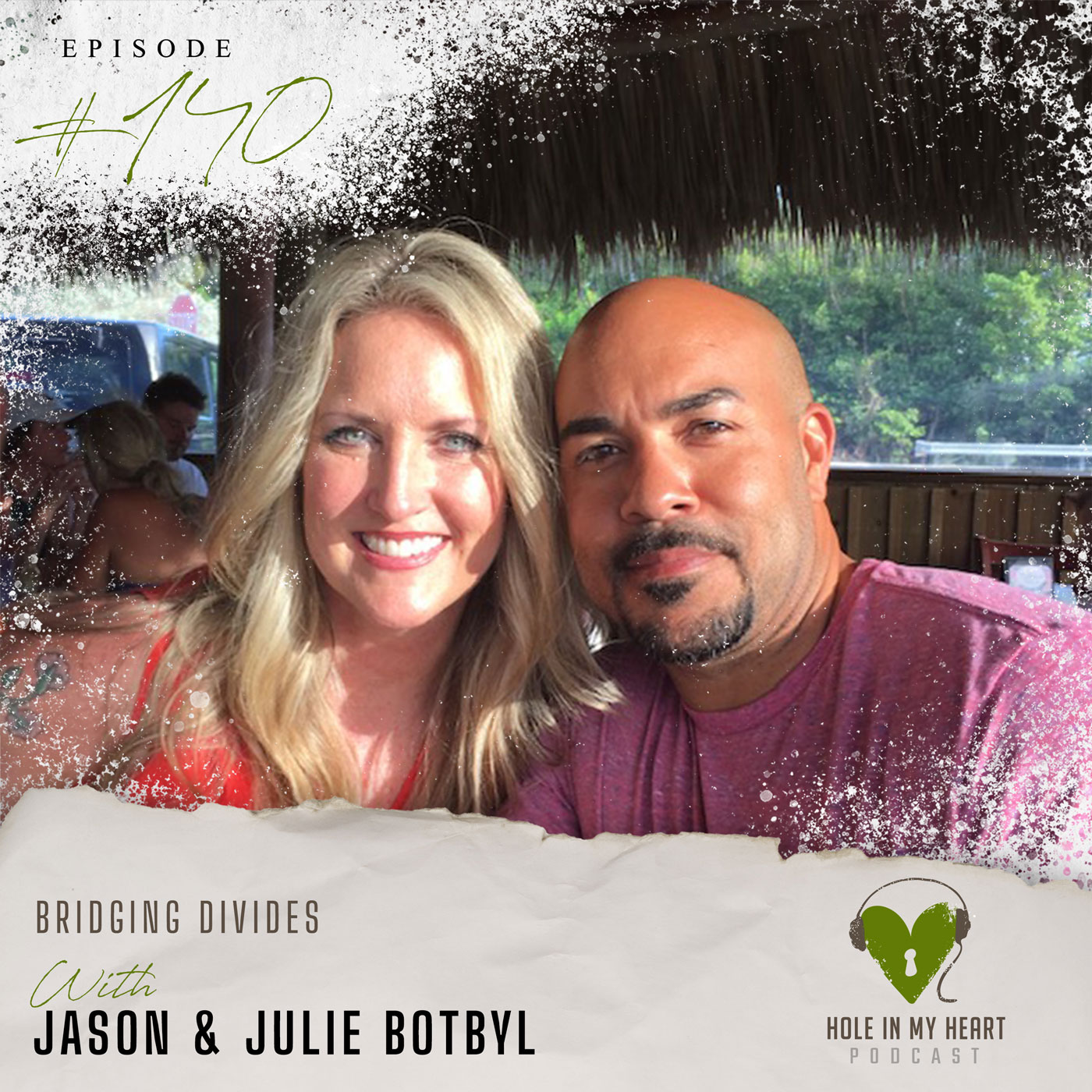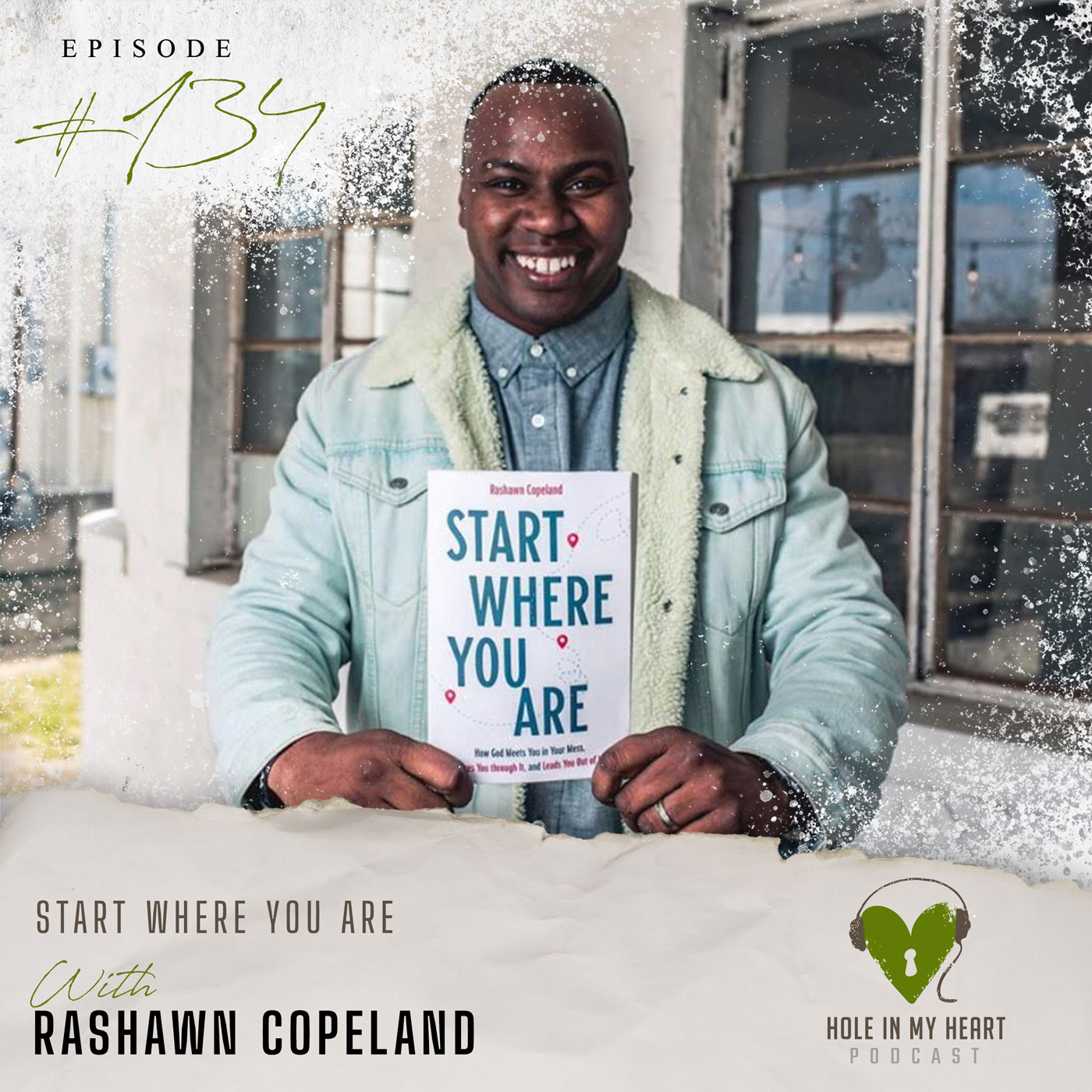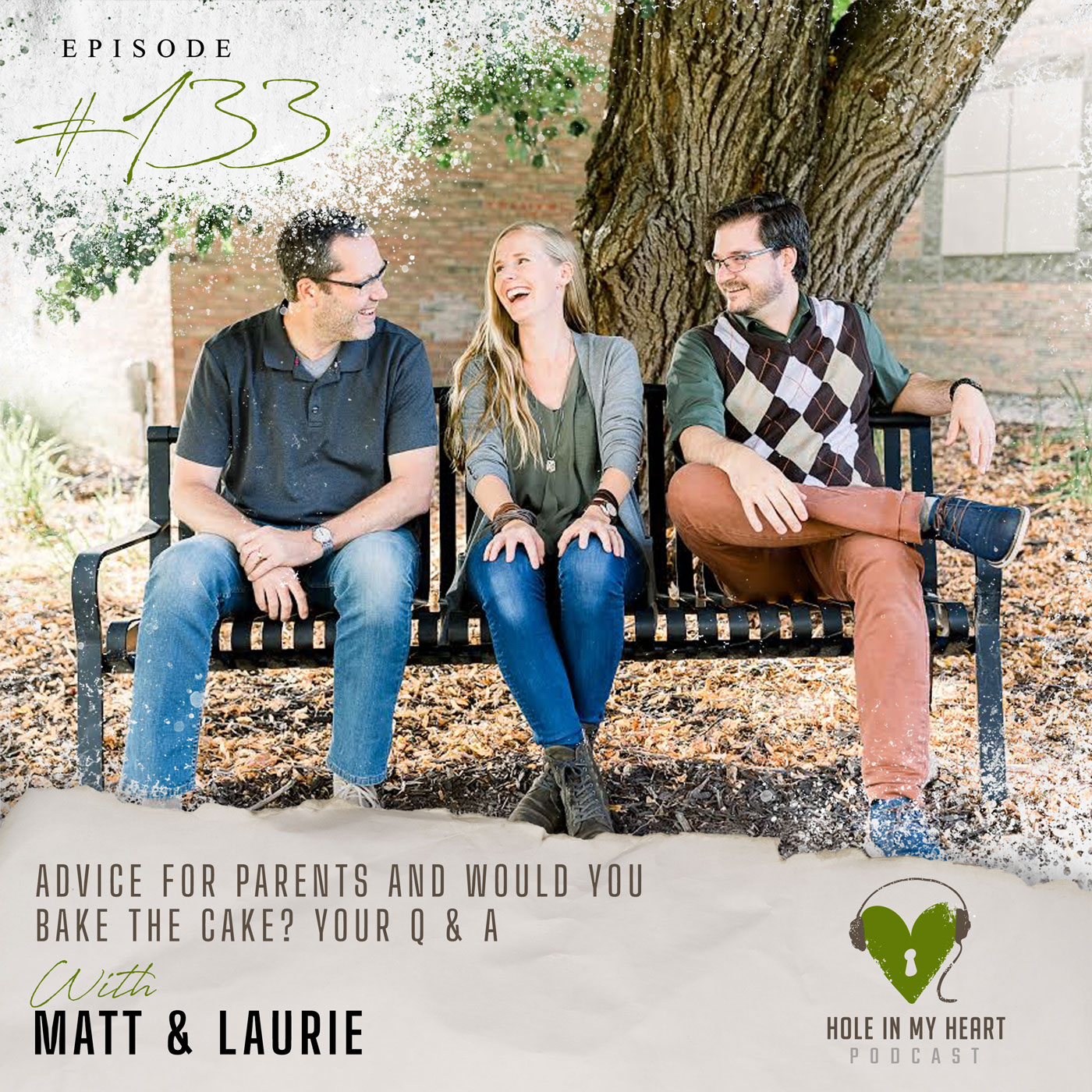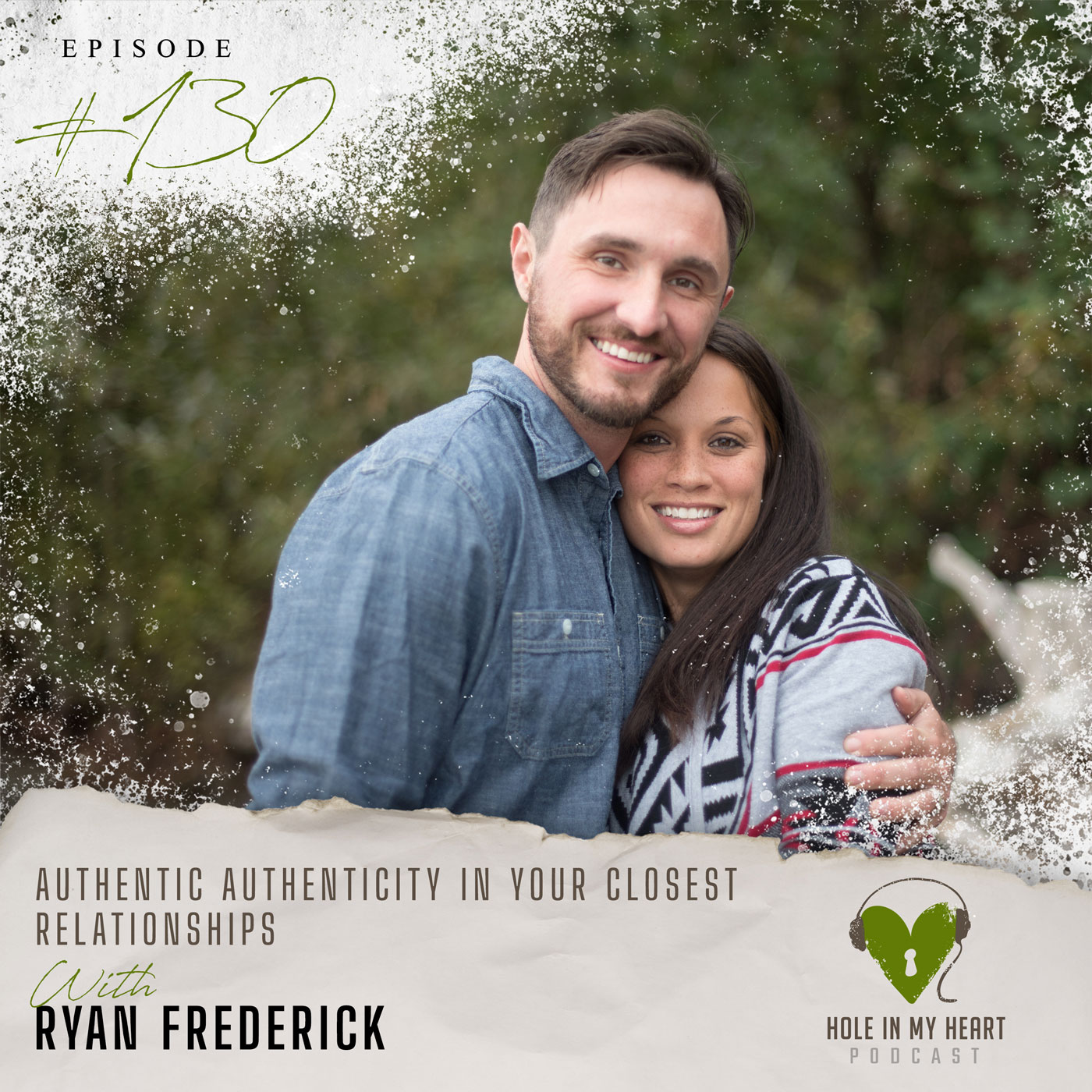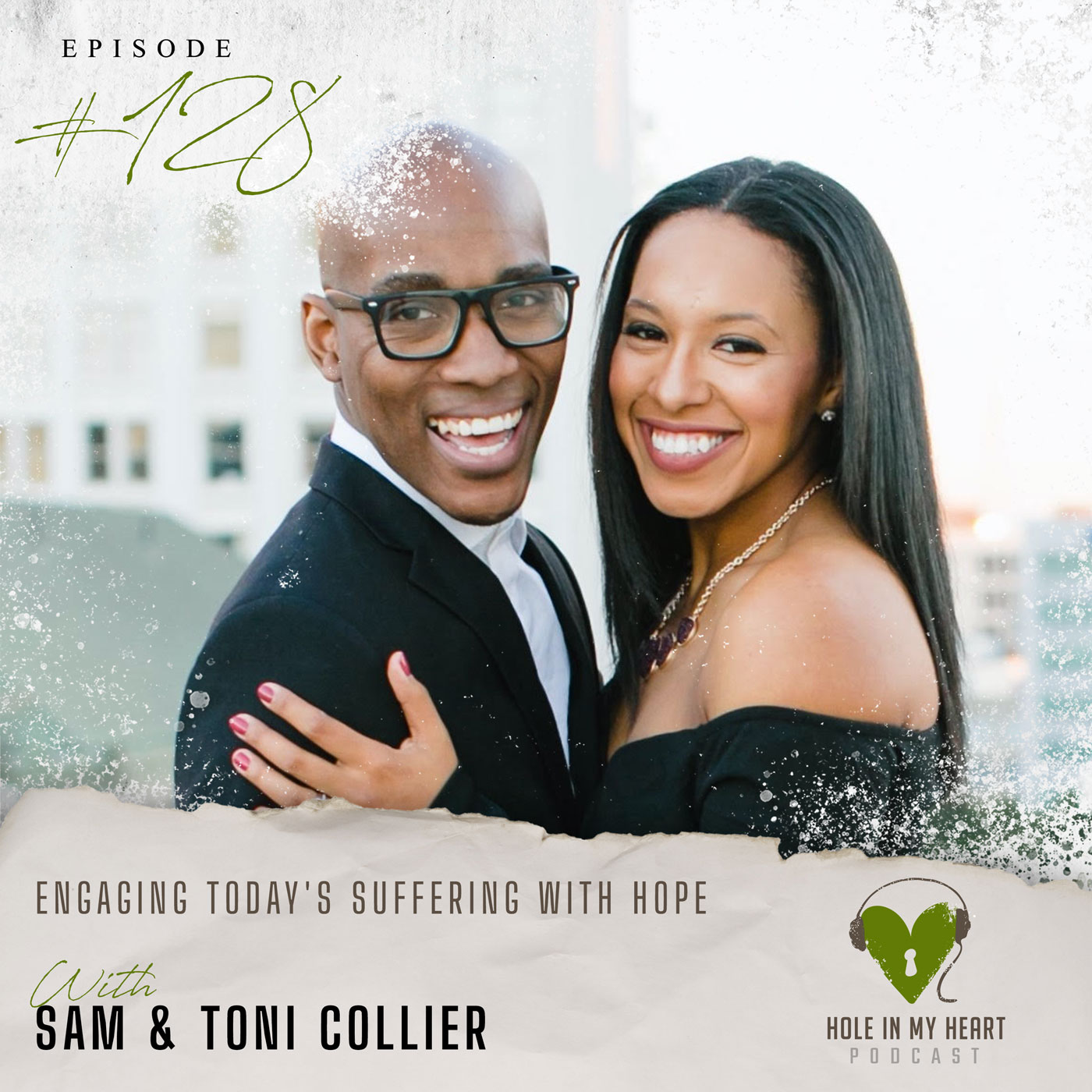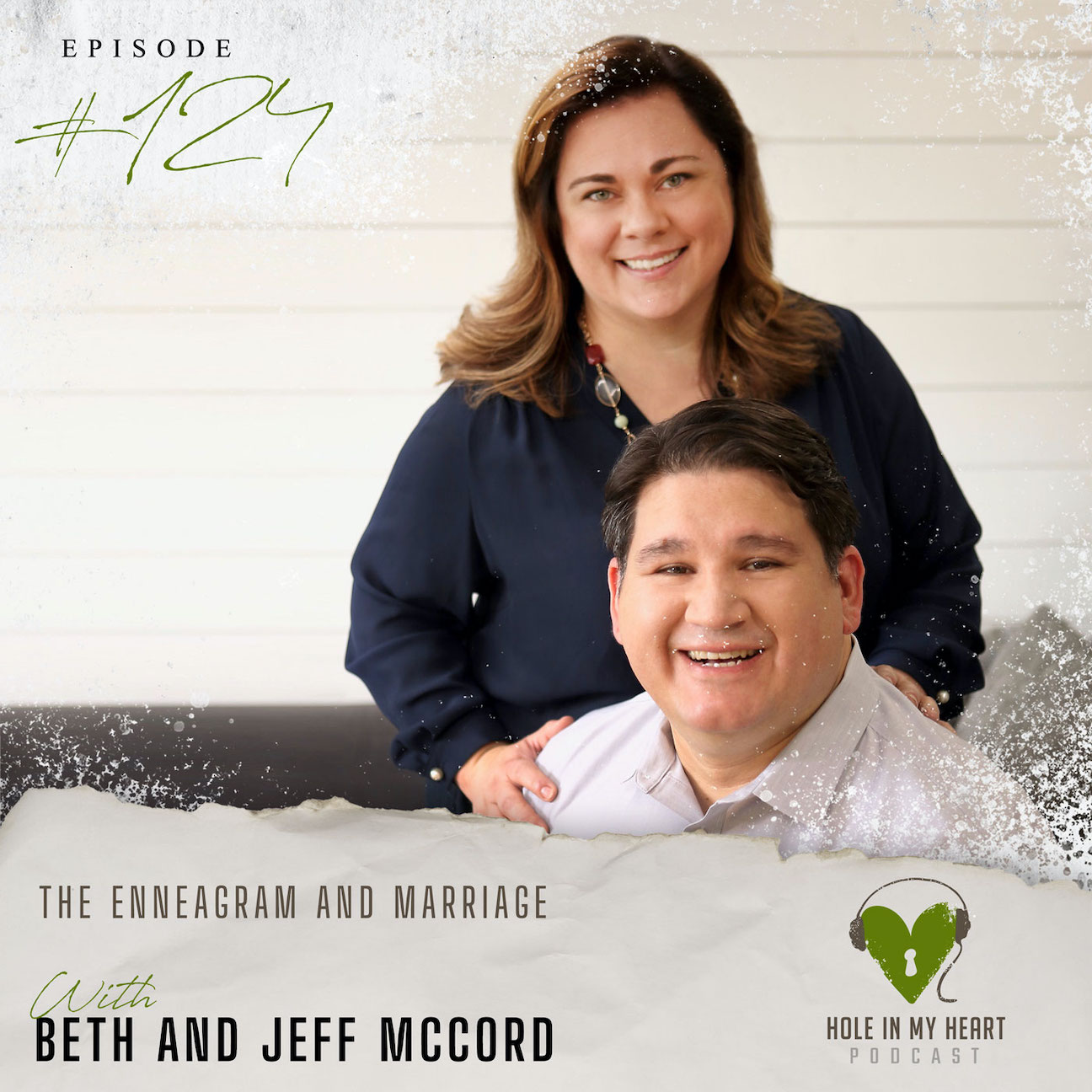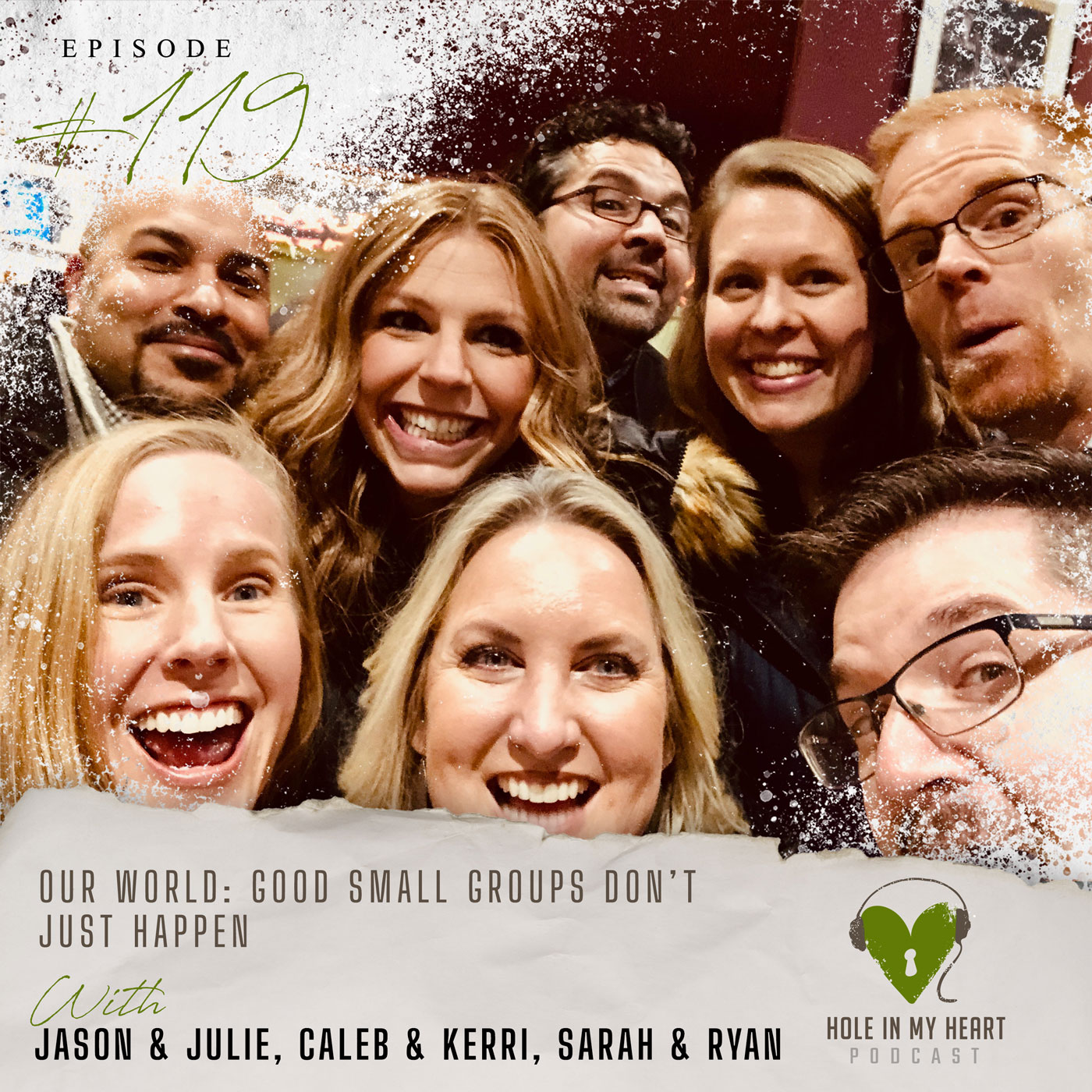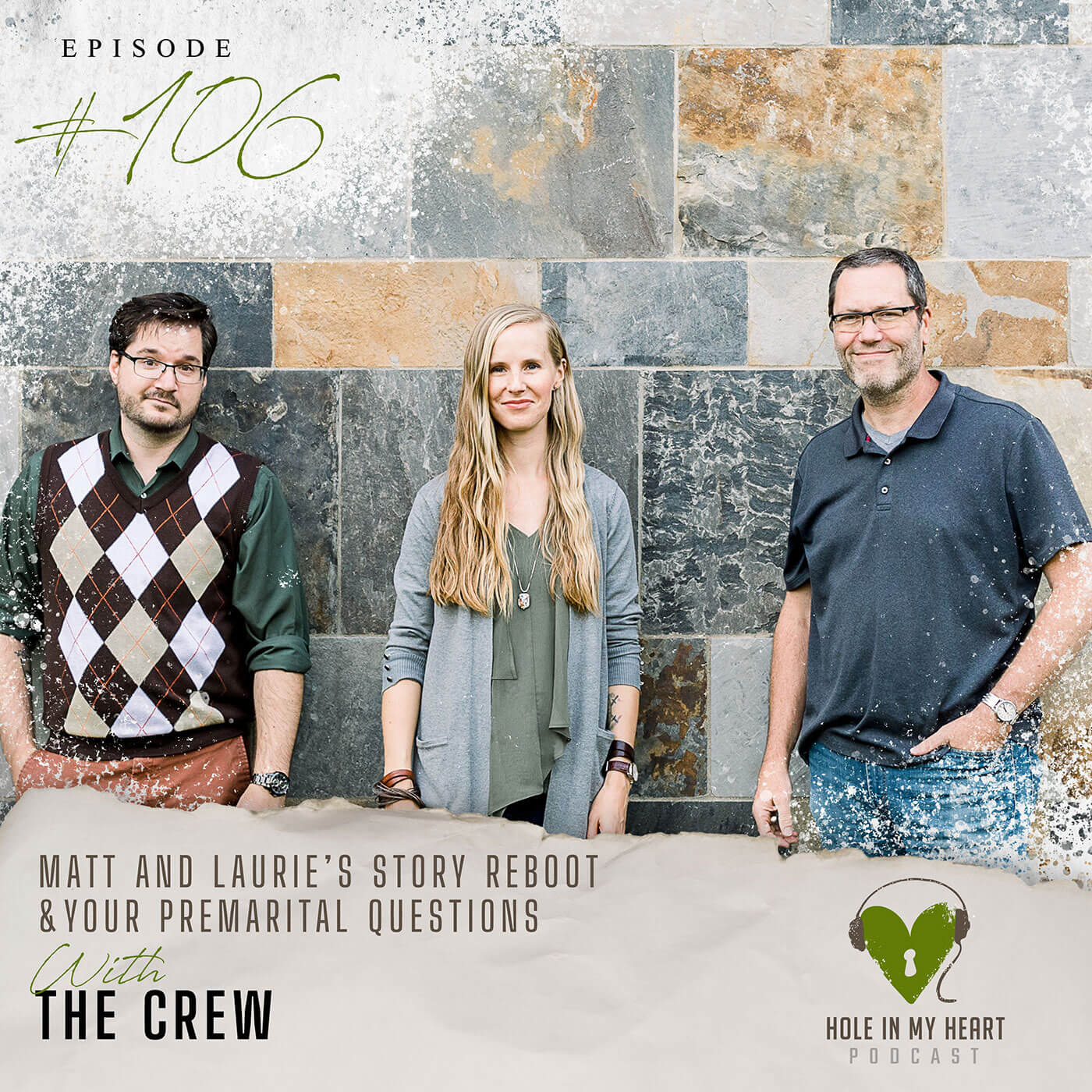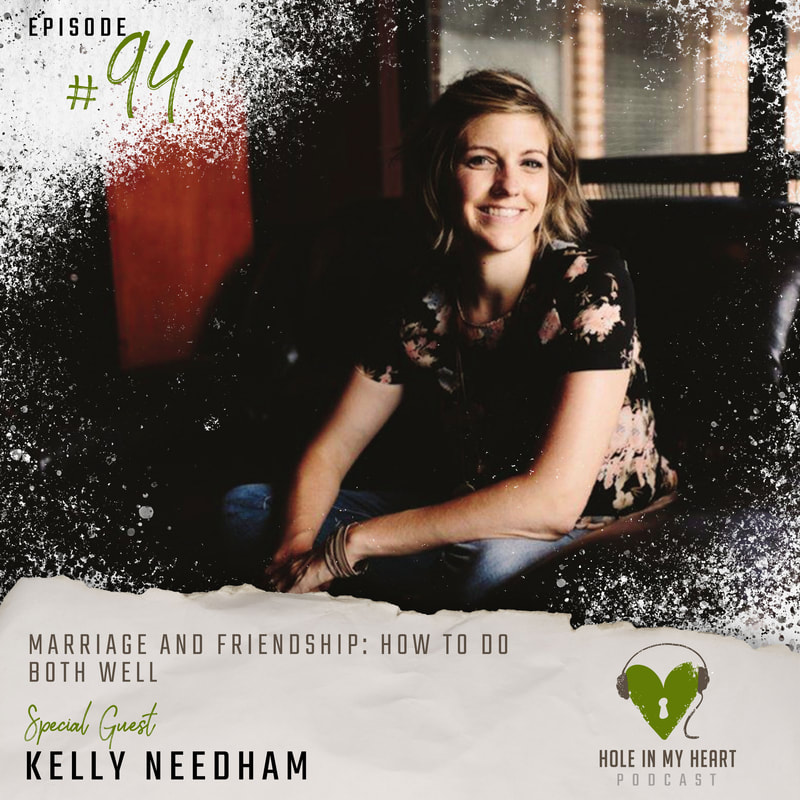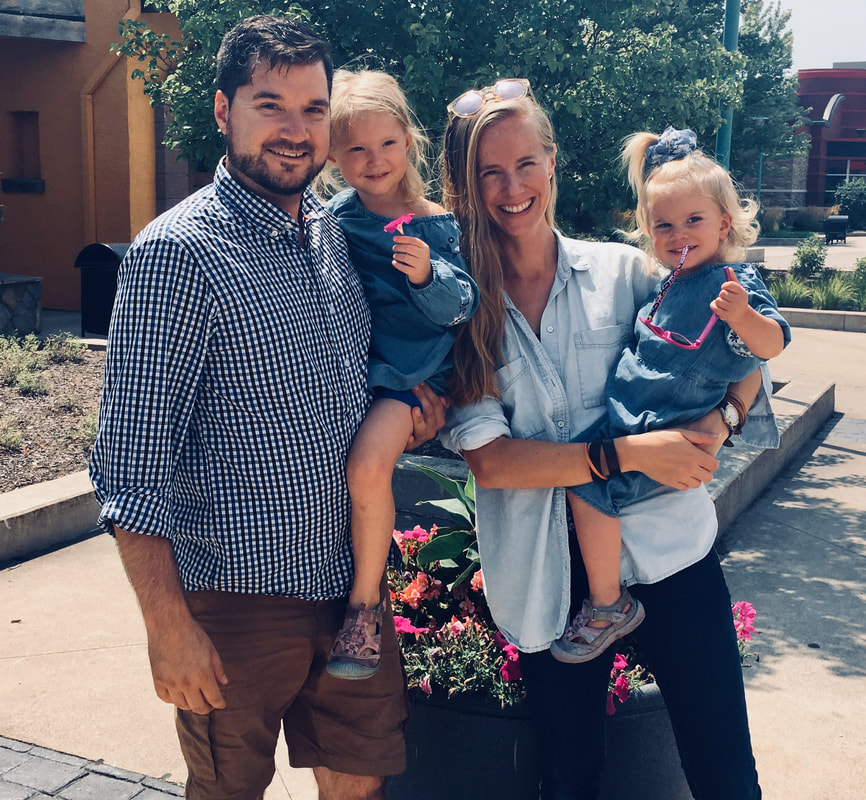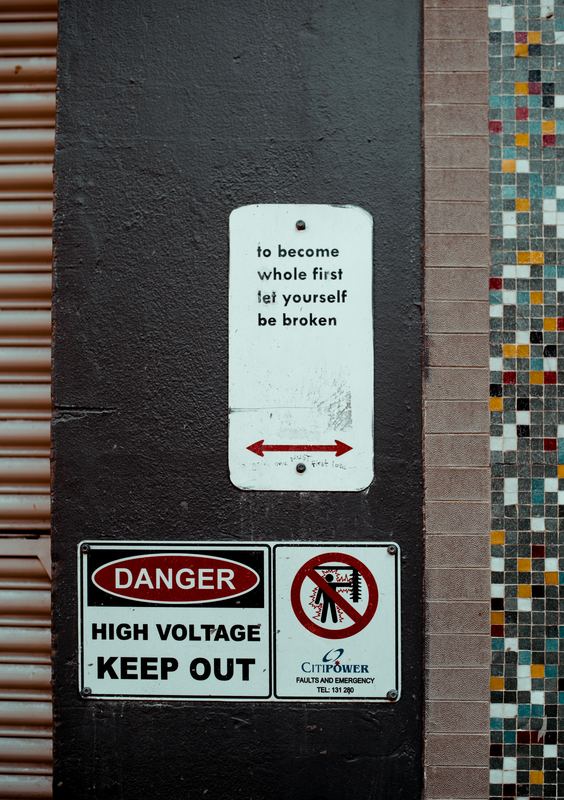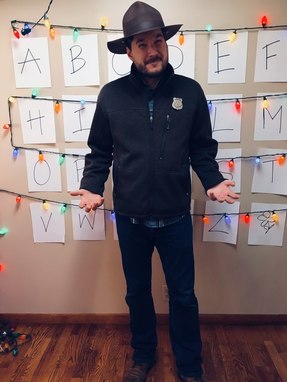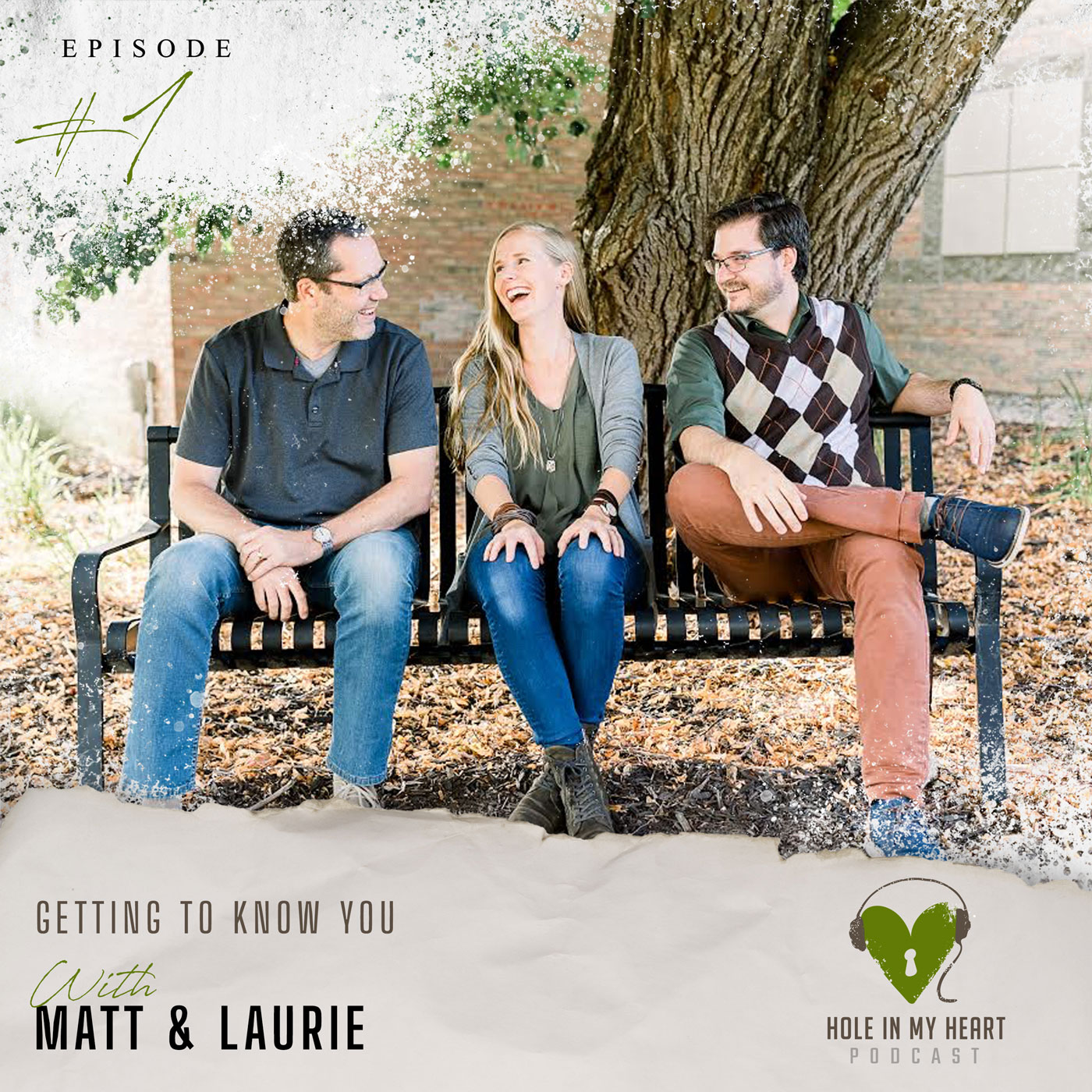Podcast category:
Marriage


Hey, guys!
Here are some of our favorite resources God empowered us to produce (with some awesome folks) this year!
10. BLOG Post: Temptation in a Pandemic: 5 Tools I’m Using
The pandemic hit and temptation skyrocketed for many (with things like porn use increasing over 11% globally). How can we stop staring at the temptation and dive into our hearts?
9. WEBINAR: Lament 1.0 and Lament 2.0
We are often asked how to do the lament process we lay out in our Impossible Marriage book or the Journey Well Study. These two trainings take written things to real life.
8. STUDY: Journey Well Study: Explore Your Deepest Needs and How to Meet Them
This one wasn’t created this year, but it continues to impact people wanting to dig deep into Core Needs and more–whatever their versions of brokenness. This study is ideally done with a friend or mentor so you can process together.
7. JAVA with Juli: When Staying Married Feels Impossible
This was one of our first interviews for our book. Juli asked the questions many asked us later–but she got the first, raw responses. Hear them here!
6. RELEVANT Magazine: Stop Giving This Relationship Advice
I mean, please? Can we stop? <3
5. THE BANNER: How to Walk Well Alongside LGBT+ People
When I was asked to write this, I asked the editors: “Are you ready for the backlash?” They were. They got some. But people and lives were also deeply impacted. Thanks for caring, guys.
4. HIMH Podcast: Tough Conversations with Friends with Stephanie Thole & Defining Stress and Success with John Mark Comer
If we are pro-racial equity, must we also be pro-same-sex marriage? Stephanie Thole helps us out. And let’s do some real talk about many of our drivenness to perform with the real deal: John Mark Comer. These episodes were two of our many favorites on the Hole in My Heart Podcast.
3. WORKSHOP: Impossible Marriage Workshop
After finishing this digital workshop, we hope you are inspired to do two things:
- Live the Metaphor: Married people will no longer dully recite “God’s design for marriage,” but will joyfully preach the gospel through their marriages.
- Cultivate Oneness: We want every married couple to understand that seeking marital oneness is not seeking better and more frequent sex, rather oneness is holistic union reflecting God’s union with us. Beyond knowing this cognitively, we will give married people the tools they need to cultivate oneness in areas that are thriving, and to increase oneness in areas that need more care.
All of the above is impossible without Jesus Christ. With Him, however? All marital impossibilities are possible. (We are, of course, not speaking of issues related to abuse. Those are justice issues that must be resolved with swift, God-empowered justice.)
2. PACIFIC Parable: The Number One Way You Can Advocate for God’s Design for Marriage
Our friends at Pacific Parable rocked this conversational talk. Thanks for letting us be a part of it!
1. BOOK: Impossible Marriage
What is the real-life purpose of marriage? What is the real-life purpose of sex in marriage? Can God work through our seemingly impossible marital situations–including addiction, childhood trauma memories, and lack of spousal attraction?
We believe in God’s work through this book so much…so, here it is. Praise Jesus and thank you to the team around us who made it happen.
That’s it! We honestly love and put so much into everything we do, and we would love to hear from you:
If you saw us take part in a project this year, what would you throw onto this list as a helpful resource?
People say our marriage is impossible. They are right.
But they are wrong if they don’t think their marriages are impossible, too.
God allows our impossible-without-Christ human marriages to be that way so that they mirror the impossible-without-Jesus Christ Marriage between Christ and the Church.
Ephesians speaks to this mysterious reality. “’A man leaves his father and mother and is joined to his wife, and the two are united into one.’ This is a great mystery, but it is an illustration of the way Christ and the church are one” (Eph 5:31-32).
People make jokes all the time about how eye-rollingly different men and women are from each other. “Hormones trick us into marriage, but surprise! We’re in a covenant, and Christians don’t get divorced. So, jokes on us!”
But is marriage to someone often so different from us a gigantic, cosmic joke? Or is it cosmic design?
How different is God from humanity? Ontologically different. “[H]e is far above any ruler or authority or power or leader or anything else—not only in this world but also in the world to come,” and yet God wants to marry us (Eph. 1:21, Rev. 19:6-9).
“God is infinitely other, infinitely different from his creation. And yet this infinitely different Creator does not hold himself aloof,” Christopher West writes. “God wants to be one with his creation. God wants to unite with his creation. God wants to marry his creation.”
Marriage between very different man and woman is impossible without Christ (Jn. 15:5). Marriage between outrageously different God and humanity is impossible without Christ (Heb. 10:12-14). Human marriage is a mysterious metaphor.
Why do people say that our marriage is uniquely impossible? Oh yeah, because I am attracted to women.
When I almost left my husband for another woman, I was starting to believe what the world preached: Our marriage was doomed because the attraction toward my husband had died.
When we were first married, I often truthfully said, “I am not attracted to men, but I am attracted to Matt.” When the Matt-attraction faded seven years later, however, I believed my lack of desire for him and continued attractions toward women offered me a get-out-of-marriage-free card. You’re free, it stated. You can be like other liberated lesbians who are best friends with their husbands, but they find a true, life partner.
Was that get-out-of-marriage-free card valid? Biblically?
The world says, “Follow your heart, your feelings, your attractions—they lead to the truest truth.” But what does the Bible say?
I wish I could say I started with Scripture to answer this question. Instead, I began by asking my straight friends questions about attraction, and by God’s grace, their annoying-but-helpful responses eventually led me to a biblical answer.
“Are you attracted to your spouse?” I asked them. “All the time?” “How is sex for you?”
Their answers were annoying because I found if they were married more than two minutes that all of them weren’t automatically attracted to their partner.
I wasn’t the enigma I thought I was.
This reality was obnoxious but simultaneously helpful because as much as I wanted to be the marital exception in order to claim the get-out-of-marriage free card, deep down, it was nice to know I wasn’t so alone. I wasn’t a freak. We weren’t so different. Maybe we aren’t in such an impossible marriage.
“I never want to have sex with him,” straight wives said. “I am not attracted to her physically at all,” heterosexual husbands offered. “I only have sex with him so he will talk emotionally with me,” women admitted.
So … everyone has issues with attraction. Huh. So, if heterosexual, Christian couples do not automatically see their lack of attraction as a liberation card from their marriage, why did I see it as one from mine?
Was there a different set of marriage rules for me?
Did the Bible say anything about attraction being the key ingredient for divorce? I can find biblical reasons for divorcing because of adultery, abuse, and a few others, but not a lack of attraction (Matt. 19:9, 1 Cor. 7). Why not?
Because marriage isn’t about attraction. Marriage is a gospel metaphor.
When we look at marriages and see two very different people—male and female—laying down their lives for each other, pursuing oneness with the other in mind, body, and spirit (even when they are not automatically attracted to them), we catch a glimmer of the gospel.
Married people show us a living, breathing picture of the call on each of us to lay down our life for our ontologically-different-from-us husband, Jesus, to be one with Him in mind, heart, soul, and strength—even when we are not automatically attracted to Him.
No. There was not a different set of rules for me.
Now, I wish I could say that stumbling into the truth of this gospel metaphor automatically fixed the chasm that had grown between my husband and I, but it didn’t. We had so much more work to do.
This work was not an attempt to make me straight; this work was and is daily seeking to increase oneness with each other in the small and significant ways we can.
This daily oneness-seeking sounds a lot like the straightest couples I know. It should sound a lot like the straightest couples I know.
Because all of us married people—if we are doing this thing right—are not trying to be like some imaginary perfect, super-straight human couple, but through the power of the Holy Spirit, are seeking to emulate the Church’s current and future marriage to Jesus Christ.
Marriage is a metaphor. All impossible marriages are gospel metaphors. All of them.
But not everyone in our specific marital situation has our story. Not everyone in what is called a “mixed-orientation marriage” finds the hope we found. My husband and I cry with them. We walk with them if we can. We simply get it. The amount of times we sat silent and alone at our kitchen table overwhelmed with hopelessness is more than we can count.
But I do wonder how much more hope impossible marriages like ours could have if they weren’t sitting at their tables silent and alone.
If the many people in mixed-orientation marriages who reach out to my husband and I every day didn’t feel like they were “extra impossibly married,” how much more hope could they have? How many of their marriages could continue to live out the gospel metaphor if when they shared their version of impossible marriages their words weren’t met with wide eyes, or quick “I’ll pray for yous,” or were given their “get-out-of-marriage free” cards?
We need to understand that marriages—all marriages—are living, breathing, pictures of the gospel.
I almost missed it. Let’s not miss it. The gospel message our marriages preach is too important.
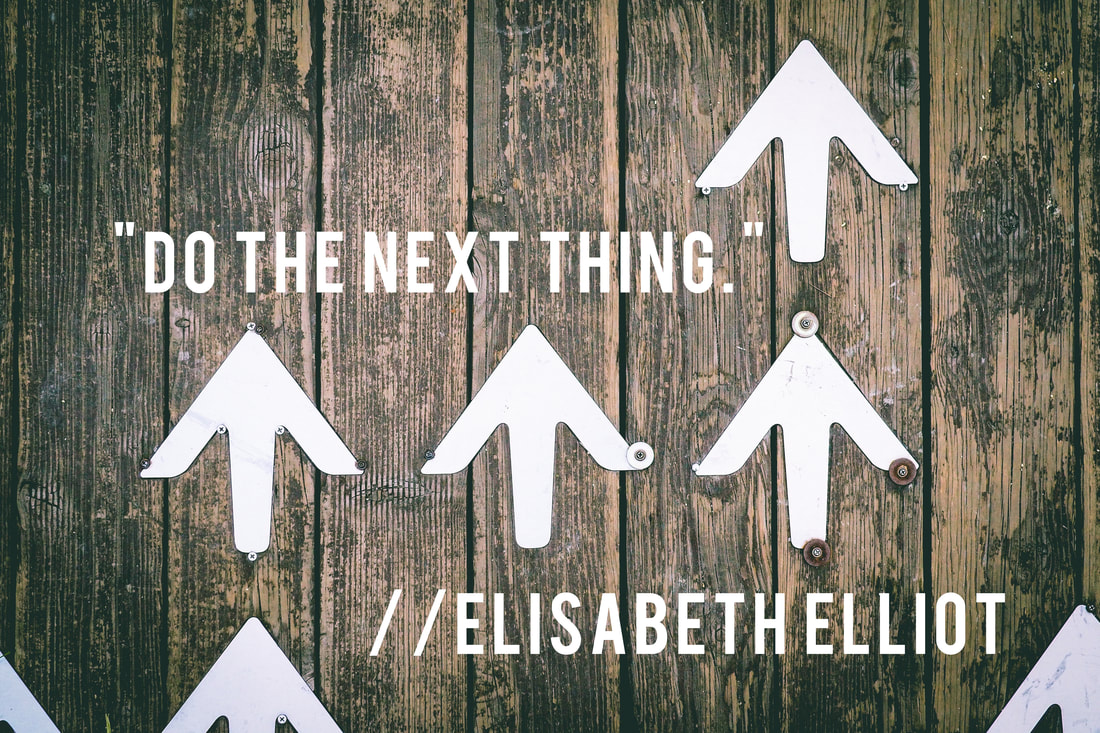
- Read: Does this message speak to you? Grab our book to hear more–from my husband and my perspective. <3
- Respond: If you are married, what is your version of an impossible marriage? How do you preach the gospel through it?
- Respond: As a single person, how do you show us what eternity looks like through your singleness? Put another way: In your love relationship to Jesus and communion with the Church, how do you actively seek to show the world a glimpse of heaven (where there will be no marriage but The Marriage) while living here on earth?
Hi! My name is Amanda, and I recently started working for Laurie and her ministry as her administrative assistant. There are many reasons I said “yes” to this job, but one of them is my own story of redemption–that redemption story happened (and is happening) in our marriage. I love that this ministry is dedicated to cultivating more gospel redemption stories like ours.
Here is a piece of ours:

Part 1: The Confession
“Amanda, we need to talk,” my husband said.
Johnny and I had been married nine years and had had conversations that began this way before. But the way he said it this time paired with his fearful eyes made my stomach drop.
I braced myself, but nothing could have prepared me for what came out of Johnny’s mouth.
“I am an alcoholic,” he began. “I’ve been drinking a lot and hiding it from you.” My eyes widened. “I have been addicted to porn and masturbation for most of our marriage.” My head started spinning. “Amanda, there’s more: I’ve cheated on you.” I couldn’t breathe.
Each confession seemed to tie more knots around my heart until I was gasping for breath.
Now, this is the part of the story where I could dive headfirst into each lie, betrayal, and the deep and real agony I experienced (to hear some of that, listen to this episode of the podcast), but I want to focus on God’s presence in this very dark season of our lives.
Yes, it’s true, Johnny’s confession meant a total life change for our family. He was a youth pastor of a thriving church for nine years. He and I were deeply rooted at that church and had the privilege of watching it and the youth ministry grow over the years we were invested in it. It wasn’t just a job to us—that church was our family.
The day that Johnny confessed to me his hidden addictions and the adultery was also the day he confessed everything to his bosses—the shepherds of our beloved family—as well.
Within a few days, our everything was stripped away.
 Johnny rightly lost his job, but it felt like we lost everything.
Johnny rightly lost his job, but it felt like we lost everything.
I remember feeling like I was drowning. I felt helpless, out of control—a complete wreck—and totally unable to fix my shattered life. I couldn’t fix my husband. I couldn’t fix my marriage. I couldn’t fix our job, home or financial situations. I couldn’t fix my broken trust or my broken heart. We had many choices ahead of us, but the biggest one for me was the choice to fix my eyes on Jesus.
As the realization hit me of my own helplessness, I remember having a very short conversation with God.
“God,” I said, “you’re going to have to fix this, because I can’t.”
I felt surrender that I had never felt before. Oh, sure, there were times in my life that I “surrendered” things to Jesus, but this was different: This was complete helplessness. This felt like many internal deaths—the primary one being the awareness that I never really had been in control of my life or anyone’s life for that matter.
It felt like the end of me. (Can you relate?)
When I think of how I felt in this moment, I think of Hagar in Genesis 16 and 21. This woman gets it. Hagar was an Egyptian slave who belonged to Abraham and Sarah. Sarah was tired of waiting for the promised child from God, so she took matters into her own hands and offered Hagar to her husband as a means of supplying an heir. So Hagar gives birth to Ishmael, but then later Sarah does in fact have her own son Isaac. Tension rises in the family, and Sarah asks that Hagar and Ishmael be sent away (Genesis 21:10). So Abraham sends Hagar and Ishmael off with some food and a skin of water, and she “went on her way and wandered in the Desert of Beersheba” (Genesis 21:14).
So here’s Hagar, a single mother, who’s alone and wandering in a desert with a young child to take care of, with nothing but some food and a skin of water. I’m sure she’s terrified of what lies ahead and the thought of how she is going to provide for her son. She was once a part of a family where she was guaranteed provision and security, but now all that is gone.

And it gets worse.
The skin of water is now gone and her son is dying. She puts her son under a bush and walks away. She thought “I cannot watch the boy die” (Genesis 21:16). Then she starts sobbing.
Here’s where I can really connect with how Hagar was probably feeling right about now. She is at the end of herself.
And it’s here that the God “who sees her” speaks to her.
“What is the matter, Hagar? Do not be afraid; God has heard the boy crying as he lies there. Lift the boy up and take him by the hand, for I will make him into a great nation.” Then God opened her eyes and she saw a well of water. So she went and filled the skin with water and gave the boy a drink. God was with the boy as he grew up. He lived in the desert and became an archer. While he was living in the Desert of Paran, his mother got a wife for him from Egypt.” (Genesis 21:17-21)
Hagar calls God “the God who sees me”(Genesis 16:13). And He did see her. And cared for her and her son.
We don’t know how she got from point A–almost dying, to point B–seeing her son grow up, become an archer, and get married, but we do know the first step: she cried, her son cried, God heard, and gave them water. It started with tears and the answer was water.
Maybe you’re in a desert right now and the future looks pretty bleak. All you can do is cry. All you can do is cry out.
Do you believe that God sees you? Hears you?
He does. And He has some water for you—like He had for us.
It wasn’t what we expected or how we expected it, but it was good. So good.
Part 2: God Met Us in Our Desert

Before I jump back into our story, I just want to share why I decided to stay in my marriage. For me, the decision was clear, I was not going to divorce my husband. A big part of this decision was being raised by parents who stayed committed to each other even though they could have easily walked away from each other. I had seen for myself the redemptive work of God in my parents’ marriage. I knew God wanted to redeem ours. Another huge part of this decision for me was knowing that my husband was truly broken and repentant. He was willing to do whatever he needed to start building my trust again. Sometime, I will share more of what this decision looked like and the practical things we did to start repairing what had been broken. But for now, let’s just jump back in.
I had reached the end of myself.
I was like Hagar in Genesis 21, helpless and unable to change or fix my situation. “God,” I prayed, “you’re going to have to fix this, because I can’t.”
After praying this, I felt my heart open. I cried out, I opened my heart, and a strange, settling peace descended.
I don’t have control of my life anymore, but I never had control of my life.
Instantly, I felt him near. Immediately, I had this assurance that He would provide and make a way in this desert.
What is the matter, Hagar? Do not be afraid; God has heard the boy crying as he lies there. Lift the boy up and take him by the hand, for I will make him into a great nation.” Then God opened her eyes and she saw a well of water (Gen. 21:17-18).
Just as God opened Hagar’s eyes to the well that offered life nearby, God opened our eyes to life-giving water that offered us life.
The first cup of water came with a job with pigs.
Yes, pigs. And yes, like the prodigal son. Within the first week of job loss, a family friend offered Johnny a job at their company. Johnny went from being a beloved youth pastor of a large church to working in hog barns—sometimes getting down and dirty in the pig manure. It was very humbling at times, but it offered stability and security to our family in a time when everything was falling apart. And we found this job was exactly what we needed.
The following week, I met with a woman I barely knew but learned had recently walked a similar path to us. The Spirit spoke through her as she spoke life and hope into the death of my marriage.
“Amanda, God is saving your husband right now.”
She reminded me that Johnny’s confession was actually God’s loving-kindness. This was another glass of water.
Soon after we met with a married couple who have a ministry doing marriage intensives. Not only did they speak truth and life into our lives boldly and gently, but they led us through a powerful weekend of healing and redemption that we will never forget. This was water in the desert.
As we unfolded our story to our families, my parents and sisters offered love, forgiveness and support when they could have chosen resentment and distancing. In fact, my dad’s first words to my husband were, “I’m proud of you son. You’ve humbled yourself before God and man.”
This was water!
In this desert season, I joined a weekly Bible study, which kept me in the Word. My husband also sought out regular accountability from a close friend. Being in the Word daily helped me to see the lies that were seeking to divide our family, and Johnny’s accountability partner helped him to remain true to his commitments and have someone to talk to and laugh with during a very lonely and shaming time for him. This was water.
Our small group was critical.
Our lives were falling apart, and we let them walk us through the messiest months of our lives. This was hard. They were from the church we left, but they were still family—and we were theirs. We found ourselves surrounded by them and other friends who consistently loved, supported, checked in, and prayed for us at a time when we felt alone and abandoned by many others. This was water.
A godly couple came over to our house one night and did battle with shame that still hung over my husband. They saw the real Him—Jesus through Him, and declared that his sin is NOT who he is nor how God sees him. This cultivated life in my husband at a time when all we could hear was gossip ringing in our ears. The gossip wasn’t my husband; the sin wasn’t my husband.
Beloved is who my husband is. Child of God is who he is. Human, fellow brother in Christ—that is who he is!

This. Was. Water.
I could go on and on with the many ways God opened our eyes to the water available to us as we cried out. He showed up in therapy, in quiet moments, and more…but mostly, He simply gave us what we needed when we needed it. It took so much work. It wasn’t always when I wanted it, but it was exactly when I needed it.
We are still on a journey…
And we want to walk with you on yours. Since joining forces with Laurie and Matt, I have been able to experience their Journey Well Workshop. I wish everyone could experience going to one of these because of the healing it offers both personally and to the broader church community.
We all are broken. We all have broken sexuality.
This workshop makes you dig deep and see the junk in your own life and helps you to have compassion for others dealing with their own form of sexual brokenness. Churches, leaders, married, and single people need to hear this message. It’s for everyone.
God is on the move, and I’m so excited to be a part of a ministry that knows how to walk alongside of people who find themselves in these deserts.

Do the Next Thing:
- Pray: Start with that crying out like I did in my dining room desert and like Hagar did in the literal desert
- Open Your Heart to Him: What next steps does God have for you? Ask yourself and trusted friends around you.
- Reach Out: We were so grateful for our marriage intensive experience and for our marriage counselors. Please don’t try to do this on your own. Reach out to a trusted therapist in your area.
- Listen: Want to hear more of our story? Listen to this episode of the HIMH Podcast.
- Read: These are just some of the verses that were water to me during this time: Philippians 4:8; Joshua 1:9; Psalm 51; James 4:7-10; Isaiah 43:19.
- Want to talk more? My email is info@lauriekrieg.com.
Can we talk about temptation in this pandemic? Anyone else feeling it cranking up right now?
Here we are, either alone or with the same spouse, kids, housemates, or the same someone—every day for the last x number of days— and then we see something else.
Someone else—and we want it. We want them. We want that. It, they, that seems like it will scratch the itch; like it will give us what we need inside.
That pan of brownies. That third glass of wine. That next episode. That extra nap. That show. That video. That next follower. That next deal. That guy. That girl.
That happened to me last week. I didn’t even realize I felt empty until I saw her. Yep. Her. If I am going to struggle with lust, it’s toward women.
People don’t seem to understand this, and I get it. Whenever I share my story, people cock their heads like puppies learning a new command, and say aloud or silently (with a raised eyebrow) one of three things:
- The world (generally speaking): “You’re attracted to women? You get a get-out-of-jail free card! Leave your husband. Find a wife. Just…please, stop that mess of a life you’re living—for the love of the real you!”
- The dogmatic church (generally speaking): “Yikes. Women don’t struggle with sexual stuff—let alone same-sex sexual stuff! Gross. Ew. Silence. Please, figure that mess out and then come back and talk when you are wrestling with something else.”
- The gospel-centered church (generally speaking): “You wrestle with temptation? Me too. Wanna hang out?”
So that we can move on and talk about the actual issue we all face in these days (temptation to get our needs met outside of God), I’m going to briefly address each of these lenses with which someone might view my life.
1. Addressing the world’s lens:
Hi, people in the world. I love you. I really do. And if I hadn’t been discipled like I was in my young 20s, I would agree with you and fight exactly from your perspective—probably on the front lines. However, I was discipled, and learned that the question isn’t “Who are you attracted to?” or “Who do you love?” The question we must ask when it comes to sexuality is, “What is marriage?”
According to the United States? Marriage begins when you sign a document. According to the Bible? Marriage is a one-flesh, covenant union between two opposite sex people for life.
Here’s one of my favorite biblical reasons why (you can find more here):
When the Pharisees question Jesus about adultery in Matthew 19:3-5, Jesus says, “Haven’t you read . . . that from the beginning ‘God made them male and female.’ And he said, ‘This explains why a man leaves his father and mother and is joined to his wife, and the two are united into one’?”
In this passage, Jesus links the creation of male and female (“made them male and female” found in Gen. 1:27) to the one-flesh union (“the two will become one flesh” found in Gen. 2:24). So what is a one-flesh union according to Jesus here? It is a uniting of “the two.” Which two? Two humans? Two people who love each other? No—man and wife, male and female. According to the Bible, a one-flesh union (what we call marriage), is a uniting of male and female.
The questions we should be asking of marriage aren’t “Who do you love, and who are you attracted to?” They should be, “Are you called to marriage? Great. (And if not, equally great.) But if so, to which opposite-sex person?”
God called me to marriage, therefore to an opposite-sex person, and that person He chose for me is Matt.
2. Addressing the dogmatic church’s lens:
Hello. I love you, too. I used to be like you—even when I wrestled with my own attractions to women. Call it hypocrisy, denial, whatever…all I know is God helped me to understand sin is sin. Jesus had to die for it all—equally. Are you willing to see my sin wrestling as equally deserving of death as yours? Here’s a good check to see if you do: “If my husband, Matt and I are looking at the same woman with lust in our hearts, who is sinning more?”
3. Addressing the gospel-centered church’s lens:
Hi. Let’s be friends.
Okay, we good? Let’s talk temptation.
So, here I was, and I saw her.
I was slammed—let me tell you—slammed with desire.
What was happening? I like to scale my temptation so I can self-evaluate and share with Matt and other friends. I usually hang out at like 2-4 out of 10 on the temptation scale, but I was at about an 8. That’s really high for me when I’ve been at the 2-4 range for a couple of years.
But I hung out at an 8 for days. I asked God for help, prayed against the enemy, and I tried my best to fight the “right enemy” as I said in the last post, but I was stuck in the “avoidance” wave.
And I was sinking.
Sinking looked like drowning in old habits from “the dark years” of our marriage. The specifics of those years are another story, but the habits primarily looked like isolating from Matt. In tough times I become cordial but icy.
“Laurie,” Matt began when I finally broke the ice and shared what was going on. “I’m okay with you wrestling with temptation, but please don’t run from me emotionally while you’re fighting it.”
Okay. Deal! I’ll try.
So, I attempted to keep my heart open to him.
However, how can we both look away from our spouse–staring at temptation, while also walking toward our spouse–seeking open-hearted union with them?
We can’t walk in two different directions at the same time.
If marriage is a picture of Christ’s love for the church, how can we both look away from Jesus–staring at temptation, while also walking toward Jesus–seeking union with Him?
We cannot walk in two different directions at the same time.
I needed the tools God forged for us during the dark years.
-
Tool 1: Just Talk
“Matt?” I said. “I need to tell you what I am feeling.” That’s a tool: Simply opening my mouth and sharing what I’m thinking about. Temptation grows in isolation and silence. (My flesh wants that, but the Spirit in me doesn’t.) So, I opened my mouth.
“I am really struggling right now. Like at an 8.” He knows what that means, and knew I needed to be specific to rip off some shame layers, but I couldn’t be overly graphic.
Why not? I always put myself in Matt’s shoes. What would I want him to share with me if he were attracted to another woman? Hmm: I would want him to share generally—especially when it comes to physical stuff. Otherwise, it would hurt too much.
I shared, but there was more to dig up. Not physical words, but heart ones.
The issue is never just the issue. Sexual desire is more than about sexual desire.
I believe there is heart language in every temptation, and I needed to speak it to get a better grip on this overwhelming temptation.
-
Tool 2: Connect the Temptation to a Core Need
Which brings us to the next tool: Below our behaviors are what we call Core Needs. Core Needs are good things God allowed in us before the Fall to feel and drive us to look to Him to fill. We are to look through creation to Him as the Need Meeter of our hearts.
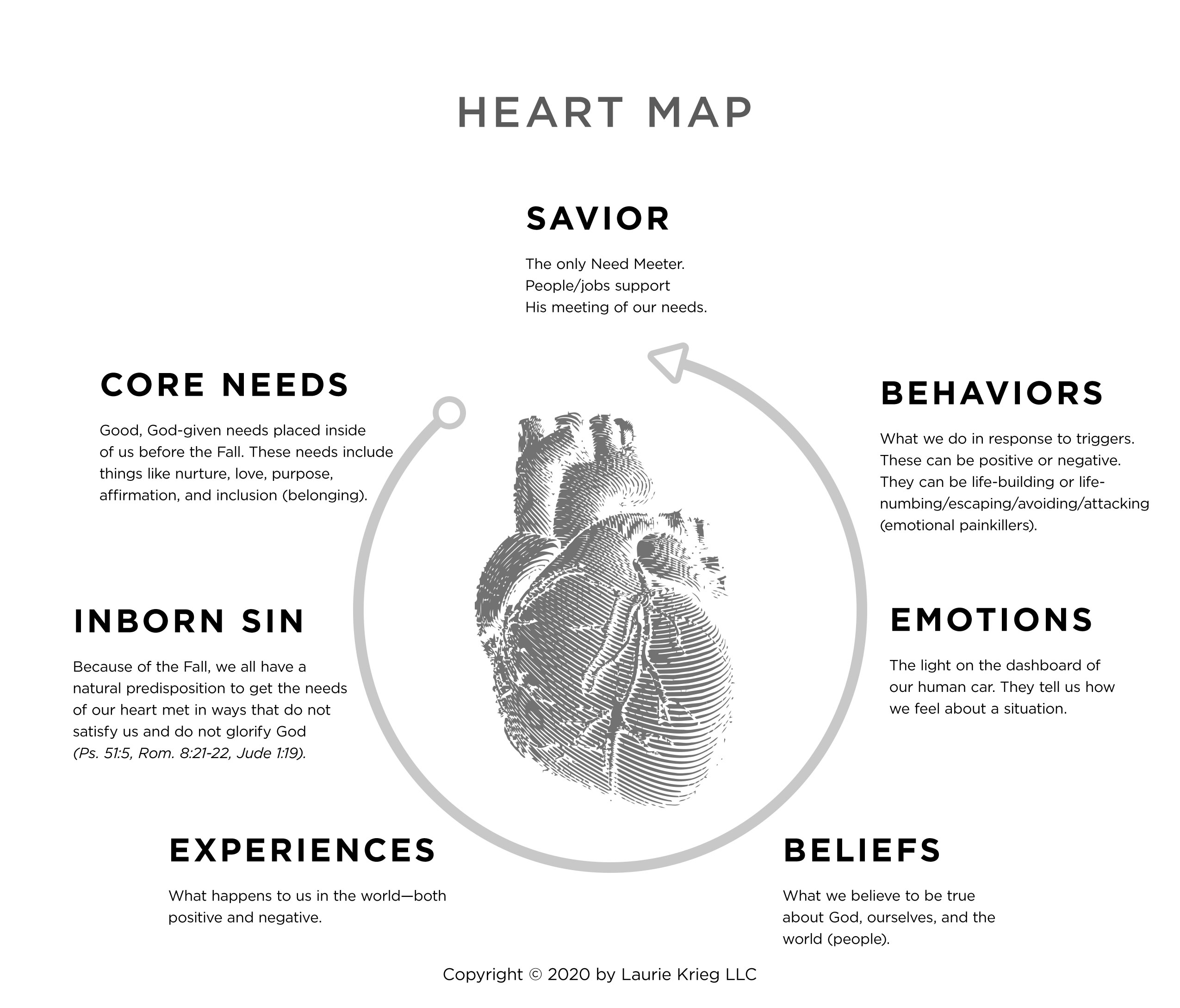
However, most of us take a detour. Instead of looking through gifts to the Giver, we stare at the gifts and say, “Fill me.”
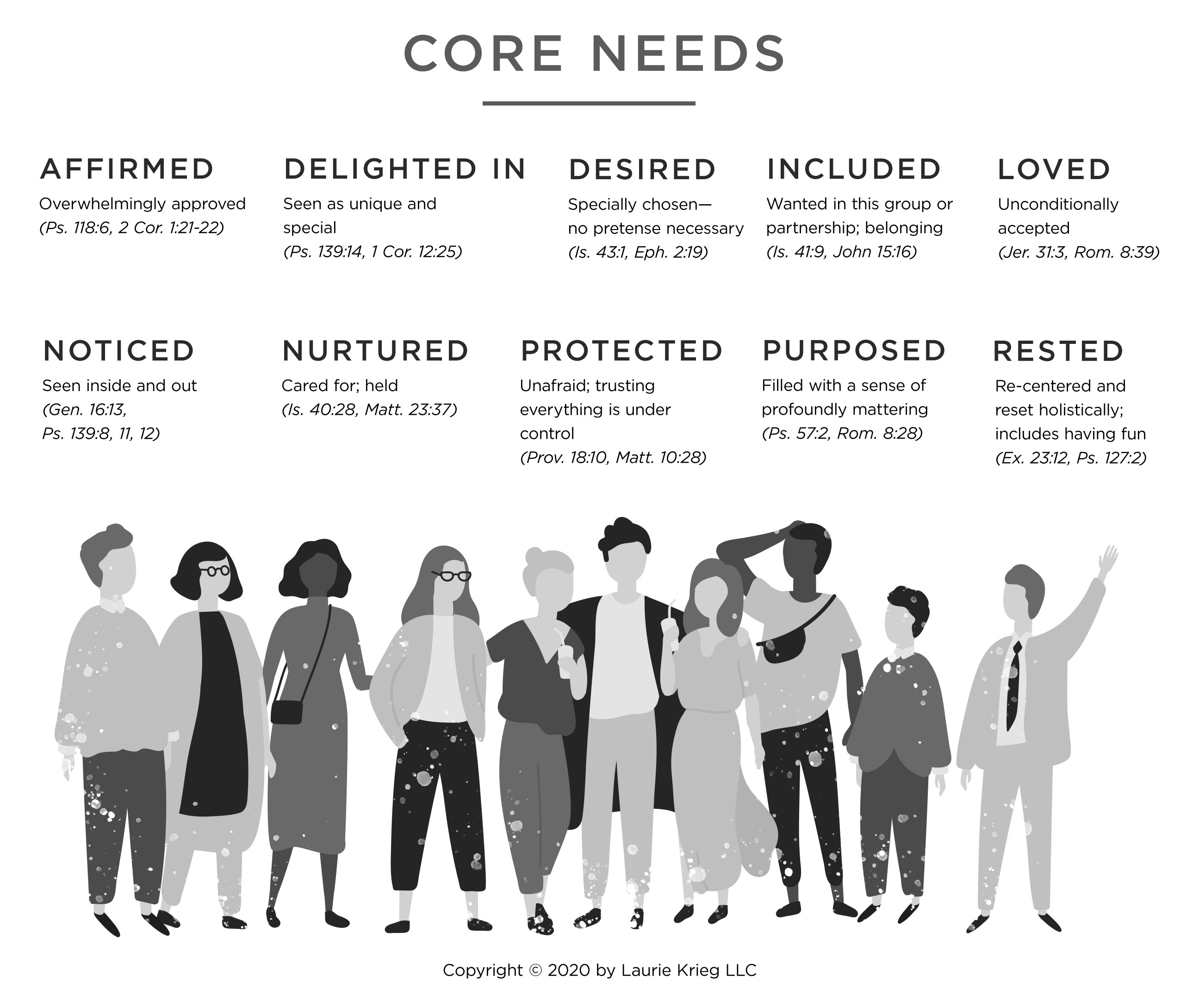
Even though I know Core Needs, I couldn’t name which one felt empty and was driving me to an extra level of temptation toward this woman.
“I need to just say aloud what I am envisioning,” I said. I paused as I pictured it. “I picture her saying, ‘Wow, Laurie, you are so talented. You are so smart, and funny. I like you.’”
That was the fantasy? It’s not all physical? No. The issue is never the issue, guys! We are holistic people.
There’s heart language in the middle of every desire.
But what was I hoping in this scene that this woman would meet in my heart? Well, she’s verbally affirming me. Affirmation. She’s meeting the affirmation Core Need.
Now, I know that a woman won’t actually meet that need in me—permanently. But when you’re drowning in the murky fog of temptation, can you discern that very clearly? I can’t. I mean, we know that third glass of wine or the whole bag of chips won’t bring safety and the real rest we need, but we still can go there. We know the next 10 followers won’t make us feel like we are included and noticed, but some of us still want them. We know scoring that next business deal won’t make us feel like we have permanent purpose, but we can crave it.
We often don’t think about what we are thinking about. We just live. We choose.
We are tempted…and when it comes to “acceptable” God-replacers? (What God calls idols?) We often dive in without thinking.
But I can’t when it comes to a woman. (And shouldn’t with the other things—sin is sin…) But, what’s next?
-
Tool 3: Think Through Why that Core Need is Extra Depleted Right Now
So, affirmation is low, but why?
I mean, can’t we just look at COVID and say, “It’s your fault, ya dumb virus and subsequent shelter-in-place!” This is what many of us say when we feel our rest need draining, and then simply grab more chips and wine.
Buuuuut, I can’t. (And shouldn’t with the other idols… They are equal God-replacers if I’m looking to them to fill me instead of God…) I can’t reach out for that woman. That would be violating the covenant metaphor I am living with Matt.
So, I looked deeper. What is it about this time that is highlighting this lack of affirmation? Well, I’m a speaker. I’m not getting the opportunity to teach! I am not being affirmed—in person—and therefore I don’t have the chance to look through my image-bearing audience to the Image who affirms me.
I also am not meeting in-person with friends hardly at all. That’s hard. No affirmation there.
I’m with my kids constantly, and they (rightfully so) take a lot in this season as opposed to give. But, my affirmation need drains with them.
And Matt. This is his weakest place. For our entire dating and marriage, I have been asking him to verbally affirm me. (Side note: He gave me permission to share this.) He does affirm me for a while, but…it is his greatest challenge.
But, again: I have to put myself his shoes. Laurie, what have you been working on your whole marriage? What’s Matt’s greatest Core Need and where you struggle to meet it in the way he wants?
Hmm. The need to be desired through physical connection is the greatest way he experiences love from me and love from God through me.
His greatest need bumps up against my weakest place. My greatest need bumps up against his weakest place.
Sometimes, marriage seems like a big, cosmic joke.
Or is it God’s grace?
If Matt was automatically amazing at affirming me, I might be tempted to let him get in line in the “idol making factory” of my soul. “Thanks for affirming me…more, more. I need more.”
Just like God uses my attractions toward women to encourage me to look to Him, God also uses Matt’s lack of ability to automatically affirm me to encourage me to look to Him.
That’s kinda the point my life: To make everything point to Jesus.
The same is true for Matt’s attractions toward other women besides me. It forces Matt to turn to God. The same is true for my lack of auto-desiring him physically. It forces Matt to look to God.
That’s kinda the point point of his life: To make everything point to Jesus.
Our weakest defaults can become strength if they cause us to repeatedly turn to God.
-
Tool 4: Take it to God
And that’s what I did.
I took my Bible and journal and slammed my pen on the page. I wrote it all out to God—all that I wanted. I wasn’t lollygagging in the fantasy; I was getting brutally honest before a Holy God who can handle it. This opened up my heart to Jesus. Even though I was praying while feeling the waves of temptation, my heart was not open to God. (We can’t run toward Him while also running away from His best for us. We can’t walk in two different directions at the same time.)
Getting honest with Him cracked it back open. Ahhh. Warmth. He encouraged me there. Affirmed me. “I’m so proud of you, Laurie,” I heard Him say through the Word and in that still, small voice of my heart.
There is no affirmation like God’s.
But truly? Journaling and reading didn’t completely fill the empty place in my heart (and then I subsequently ran back to Matt with open arms). No. But reaching out to God did do something. It gave me a towrope to grip while I crawled back to shore.
-
Tool 5: Invite Friends In
If you’re single and reading this? Hopefully, you invited friends in at Tool 1, but if you’re married or single, invite them in again. “This is so hard. Do you see me here? Can you help me?”
A couple of friends did. Again, their words and encouragement didn’t fill up the empty places in my heart completely, but they did do something. They gave me a towrope to grip while I crawled back to shore.
All of these things—talking with Matt, learning the heart word connected with it, reaching out to God, reaching out to friends—combined helped to slowly inch me back to a 4 out of 10 on the wrestling scale. That’s normal for me.
I’m likely going to wrestle intensely again. I’m going to have to figure out what need is extra depleted again, go to Matt, go to friends, and go to Jesus again and again.
Especially in this season. This is a hard season, guys. Our needs can feel extra without fellow image-bearing humans to give us a tangible example of Jesus.
But I’m going to do it. I’m going to go back to God. Again. And again. Not just with this—but shoot. Writing this has made me even more convicted about other idols I run to. (The acceptable types—chips, Netflix, people pleasing, perfectionism—all of them.)
But if we keep reaching out, grabbing that towrope, crawling back to shore, we are going to get stronger, friends. Stronger and more unified with each other and God.
That’s what He wants.
That’s what gives Him glory.
That’s what actually fills those empty places. Slowly. Not often in the ways we want. But always in the ways we need.
Don’t give up.
I won’t either.
Do the Next Thing:
- Consider: Where have you been running? What do you think it will meet in you? What Core Need is that? Why do you think it feels extra right now? How can you take that to God? What is He saying to you? Which friend can you invite in? If you’re married, what have you shared with your spouse?
- Sign Up: Our book is coming out Nov 3! (Eek!) Sign up at the bottom of this page to stay informed with it and all other things we are doing. <3
So, the stats aren’t great, are they? If the U.S. follows the pattern of China, when all of this is over (if ever this is over), we may watch people make a beeline for divorce lawyers’ offices. (Truly, they already are.)
People are joking about it, but the struggle is real:
Marriage is hard and, in this pandemic, it can be even more challenging.
You feeling it?
We are. Put two people in one house with tiny (or half-grown) humans, financial stress, and health fears, and small marriage issues can become gigantic. Maybe they won’t walk us to divorce, but they could isolate us in the midst of isolation.
(That has been our enemy’s plan from the beginning.)
By God’s mercy, we sensed this could happen to us, which is why on day two of the pandemic insanity we started fighting to grab each other’s hand as the waves of fear, despair, disunity, and avoidance crashed over us.
Let’s look at each of those four, intangible waves: fear, despair, disunity, and avoidance.
Because, friends? They are what we are truly fighting here. Yes, health scares and financial ruin are real, but we can’t really do much about them besides plan, pray, and, well, keep on sheltering-in-place.
But this intangible, spiritual stuff? These invisible waves? We can do something about them. And we need to do something about them before they wipe us into the open sea of pandemic flailing.
If we do—if we fight the right enemy together—this battling side-by-side is not only not going to add into divorce statistics and Buzzfeed jokes, it’s going to foster unity like we’ve never experienced before.
-
The Fear Wave
Everyone has a moment or three with this pandemic got real for them, but for us it was when we saw we couldn’t meet in groups of 50 or more. As a speaker dependent on large audiences to spread the gospel and generate income for the ministry and our family, I watched planned-on finances freeze in an instant.
My chest tightened, and I felt myself start to freak out.
I have learned over the years what is best for me to do in this moment: Take stock of how I feel, and then filter those emotions through prayer. God, I am scared. But what can I grip right now to orient my emotions onto truth?
Emotions are trustworthy tellers of how we feel, but they are not usually trustworthy tellers of what is true.
I needed true truth.
I invited Matt to ask Jesus for true truth with me. “Matt? I can’t get a grip. Will you pray with me for a word, a song, or a picture on how we should approach this next season?”
We paused and listened—filtering what we were hearing in that still, small voice of our hearts through the Word.
“Joy. The joy of the Lord is your strength,” we heard. Ugh. Joy is not my default, but because it isn’t, it told me that what we were hearing wasn’t from my own desires. God’s voice may have the same tone in our heart as our own, but I know it’s not my voice when it pulls me a step ahead of what I would automatically choose.
God’s voice is also always in line with the Bible.
Both things were in place: A step ahead and in line with Scripture. We took it to mean it was from Him.
Okay, God. Joy. How do I know how to seek true joy? Well, I have been learning about it. The link to joy is gratitude. Pray continuously. Give thanks in all circumstances. Be joyful always. Pray. Give thanks. Choose joy.
We began with gratitude. “God, thank you for the pretty sunshine. Father, thank you for this roll of toilet paper.” We invited our kids into the gratitude game: “Jesus, thank you for chalk, for pizza, for this dandelion…”
Gratitude is more contagious than a virus, and the fruit of it is joy–not death.
-
The Despair Wave
Then came despair. I think at some point in this whole thing your nerves get so fried from all of the bad news that you just get exhausted. “This is our life now…”
I felt it intensely one night but couldn’t articulate it. An invisible, heavy, nameless blanket sat on me as I tried to fall asleep. My mind was spinning and then just…stopped. I reached out to Jesus. What is going on, Lord?
I’ve been depressed, but this wasn’t depression. It came on too quickly.
I could sense there was something dark in our room. Now, I have been so so so hesitant to share things like this for years, but for the same amount of years God has been whispering to me, “Dear one, you need to share about spiritual warfare. I need my people to lean in more.” I didn’t want to because it could be misunderstood, misused, or just…scoffed at.
But guys? We are not in a flesh and blood battle! There is darkness out there and in our homes. Yes, sin in the world affects us. Yes, there is something called real depression that is a product of many things (physical, psychological, and other issues). Yes, there is sin in me makes me choose wrong. But we also have a real enemy.
And I was feeling him that night. I couldn’t just sense it; I could almost see it—in the space between my eyeballs and my imagination. And it was evil. So vivid and evil. Satan and his minions are not funny. They are not a Halloween costume. There’s nothing good even near his wickedness. Nothing.
I started praying aloud, speaking Scripture over our room. The Word of God is sharper than a two-edged sword, and I went to my favorite passages: “Greater is He who is in me than He who is in the world. Get away from us, Satan, in the name and through the blood of Jesus Christ. The name of the Lord is a strong tower, the righteous run to Him and are safe.”
But I was quiet about it. I whispered. Even though Matt and I are very close—we are one—I can feel insecure when it comes to sharing with him my spiritual life. (Can you relate?)
I fought shame and invited him into the battle. “Hey, there is something dark in here. Will you pray with me?” Of course, he would. (This wasn’t always the case, but that’s another story.)
I knew this, but how quickly we forget who our allies are.
We prayed, spoke Scripture, but sensed we needed to name the darkness—not just pray vaguely against it.
“I pray against a spirit of fear,” I said, but sensed that wasn’t it. The darkness was still present. “We tell a spirit of…” I waited. What was it? “…discouragement and despair to be gone in Jesus’ name. We pray the cross of Christ between us and them.”
I don’t know how to say this, but I could tell that prayer arrow hit something. That’s it. “In the strong and mighty name of Jesus Christ, we tell that spirit of despair and discouragement to be gone.” We were not loud. We were not anxious. We didn’t even sit up!
We were focused. We were side-by-side, battling with prayer. “You have no power here,” we continued. “Greater is He who lives in us than He who is in the world.” Over and over we prayed it for about five minutes. Then…peace. Joy. Unity.
Unity—in the midst of so much disunity, fear, and despair.
We kept going, now praying now into light. “Father, guard this room with your presence. We pray protection over every room in this house…”
We sighed with relief when it felt like the battle was over.
This sort of side-by-side fighting not only removes the assaults that could walk us toward division, but it unites us.
Not this pandemic, Satan.
-
The Disunity Wave
All I will say on this one is be aware of it. If Satan can isolate us into our homes, how much more would he want to capitalize on the movement and isolate us within our homes?
Fight it. Fight the true enemy.
Fight together not each other.
-
The Avoidance Wave
Avoidance is best friends with despair. In those moments where discouragement wants to come back and settle onto me, it’s buddy, “just give up and do something else more fun” is ready to whisper in my ears.
Now, there is a beautiful thing God is teaching some of us over-achieving, work-addicts in this season called, “Just be with Jesus.”
But, it’s easy for the pendulum to swing from “just be with Jesus” to “and also binge Netflix.”
The way we have been fighting this together is by starting our days in prayer and Bible memorization as a family.
I get that perhaps reading the above sentence makes us sound like halo-wearing weirdos, but I’m telling you, it has focused our days and energy onto the right thing. “What are you thankful for, and what do you want prayer for?” we ask each of our kids.
Hearing them and having the accountability (even with our three-year-old!) keeps us focused on the right thing that day—whether it be working on a blog post (with Jesus) or learning to add colorful chalk to my daughter’s hair (with Jesus).
***
Guys? I have let each wave knock me over and wash me away into the ocean of a pandemic flailing more than I’d like to admit. But every time I am near-drowning and I remember, “Oh yeah! I’m drowning in fear, despair, disunity, or avoidance. These are enemy tactics!” I am quicker to stand up, apologize, and regrip Matt’s hand at the shore.
We don’t have to drown.
We don’t have to follow China’s divorce trajectory, and we don’t have to keep spitting out memes about how stupid and annoying our spouses are. (As funny as some of them are.)
We can have a different path. We can build new muscles as we learn to grip each other’s hands as the fear, despair, disunity, and avoidance waves crash over us.
Then, when this is over, we may look in the mirror, side-by-side, and see, “Wow. We didn’t just make it through. We got stronger. More muscular. More unified.”
But we won’t stay there–staring at our ripped reflections.
God is going to use these muscles for the next adventure together.
Whatever that adventure may be….
Do the Next Thing:
- Respond: What do you think? Have you encountered these four waves? Any others?
- Read: Want to hear more about how we fight together not each other? Check out our book here.
- On Memes: Okay. Some of them are really hilarious. (This one got us cracking up last night.) But as we read/watch them we need to be asking ourselves, “Is this promoting unity or disunity?” If you are laughing together, that’s something, but if it’s secretly passive-aggressive and just mean? That’s something else.
- Pray: I get that not everyone has a spouse/housemate/whomever with whom they can live this out. But some of us do…we just have some barriers to clear before being able to grab their hands and stand in the midst of the waves. So, pray. Ask God to help remove these barriers and show you the next right step so you can do battle against the real enemy.
- Reach out: There were years on our marriage where the above could not and did not happen with us. We needed help. If you’re looking for extra support in this season, hit me up. I will connect you as best as I can.
- A thought: The idea to name what I sensed in our room came from reading Jesus’ interactions with literal demons. He doesn’t freak out. He doesn’t get all weird and noisy. He calmly, authoritatively asks them their names. Naming something releases its power and hones your prayer. I learned more on this from John Eldredge’s not weird or scary podcasts on spiritual warfare.
Our oneness is a witness to the world that God wants to be one with them.
And our oneness is a witness to our kids that God wants to be one with them.
I reached for Matt’s arm, gave it a squeeze, and smiled. I was filled with deep thankfulness as I looked around the mall at the Christmas décor, remembering years past when Christmas seemed to unify us through pain.
Now there wasn’t as much pain. There was (and is) just normal, being-in-relationship-to-another sinner stuff. Matt looked over at me and squeezed and smiled back. He received my silent message and returned one. I love you, too. I’m grateful, too.
As we walked, I was surprised to feel a warm body on the other side of me.
It was our oldest daughter, Gwyn. She looked up and replicated the squeeze I did to Matt. I knew this move. When Gwyn sees Matt and I close—hugging, kissing, or arms around each other—something happens to her. She draws closer. She feels . . . safe. I asked her to see if my assumptions were true.
“Gwynnie?” I asked, hugging her with my left arm while still holding onto Matt with my right. “When Daddy and I are close, does it feel safe in your heart?”
We’ve had this conversation at least a dozen times before, but her answer always amazes me: “Yes,” she said, unable to articulate the fullness I saw on her face. She snuggled closer as we walked through the holiday cheer. “Oh, yes.”
One of the purposes of our marriages is to be a witness to the world that God loves them.
It’s a visible, ongoing picture to the world that “As we are one with each other, so God wants to be one with you.”
“As the Scriptures say, ‘A man leaves his father and mother and is joined to his wife, and the two are united into one.’ This is a great mystery, but it is an illustration of the way Christ and the church are one.” (Eph. 5:31-32)
It’s easy to put on our best faces at church, on dates, and in the mall, but when we get home, we let all of the marriage oneness fall apart.
Our in-home conversations are not for heart-connections, but to get things done.
Our in-home hugs are not soul-connectors, but are obligatory (if at all).
Our in-home serving isn’t to show the other we submit to each other out of reverence for Christ, but because, “I can’t live in this dump hole of a house anymore.”
And our kids are watching.
When Matt or I start walking with people—he in a counseling relationship or me in a discipleship one—one of the first things I do is ask them about their parents. “How did your dad treat your mom? How did mom treat your dad? How did each of them treat you?”
One-hundred percent of the time, relational interactions they had with their parents or guardians reflects how they perceive God.
Not every relational interaction with them is the same as how they view God, but there are often a few.
Dad was distant and cold?
They see God as distant and cold.
Mom was unpredictable in her emotions, and they felt they had to placate her?
They feel they have to tiptoe around God.
Dad seemed to demand perfection?
They feel God requires the same thing.
Mom hit you if you made a mistake?
They wait for God’s backhand when they fail.
Now, people may say, “God is love,” but their default perceptions of how they really feel about God, always resemble Mom and Dad. Unless they confront these misbeliefs, they will go on believing them.
So, how will our kids view God in adulthood if Matt and I are their first images of the invisible God?
Holy conviction, Batman.
When attraction is gone?
Will we pursue loving the other to show our children how much Jesus loves us and how we are to love Him—even though we are not that cute and, in suffering, God doesn’t look that cute to us?
When we are fighting?
Will we show our kids how to not be aggressive-aggressive or passive aggressive, but to be honest, forthright and work through pain as we are called to do with God (i.e. lament)?
When our spouse comes home from work and we don’t want to greet them kindly, but instead throw kids, food, and complaint onto them?
Will we instead demonstrate how we pursue God through struggles—and how we are to be thankful in all circumstances?
Ahhhhhhhhh. This is hard, right? And not just when marriage is extra painful, but when it’s just normal, married-to-a-sinner stuff.
But how do we do this? How can we live out this oneness metaphor of God’s desire to be one with us? Where do we get our motivation?
Can I be straight-up honest with you? I’ve explored a decent amount of marriage materials, and so much of them revolve around the horizontal relationship-building. They address the above areas—attraction, fighting, the importance of kind greetings—but the reason (the motivation) they give for doing it? Because . . . well, we are supposed to love each other. Marriage is about sanctification. Holiness. It’s about becoming more like Christ.
None of what they are saying is wrong, but is sanctification and holiness the best and primary motivator for marital connection?
Maybe. For some people. But honestly? When I was ready to leave Matt, those reasons were not helpful. “Holiness? Pfft. I can get that somewhere else. Sanctification? Life is hard. I can get sanctified and go through trials elsewhere. So, see ya.”
But . . . but . . . when I saw the vertical reasons?
When I saw the grand, beautiful purpose of being a witness to the world (which includes my kids) that God crazy loves them? Oh, man. That had staying power. It wasn’t the only reason I didn’t leave, but it was a big one.
A problem, however, was I had no energy to make the metaphor happen. I now wanted to want to make the metaphor happen, but I did not have the impetus to do it. Matt wasn’t cute enough. I wasn’t sanctified enough.
I had to go somewhere. I had to go to the only place that gave me energy. The name for that energy is “love,” and the source of it comes from the One who has that name.
“God is love.” (1 Jn. 4:8)
“God, I want to show my kids how much you love them, but I am not feeling love for Matt. I don’t want to serve him. Hug him. Move toward him. But you do. You love him. You love my kids. You love me!”
There it was: the energy. I poured out my pain, opened my heart to God, and boom: I received energy/love—for me first. It took months. It took work (counseling, prayer, friendships)—it took removing barriers between my own heart and the Maker of my heart—but as I sought Him and seek Him, He gives it.
And that love is the only motivating energy to live out the metaphor.
There is more to this story (hence the forthcoming book), but I want to leave it here for today.
Our oneness is a witness to the world that God wants to be one with them.
And our oneness is a witness to our kids that God wants to be one with them.
